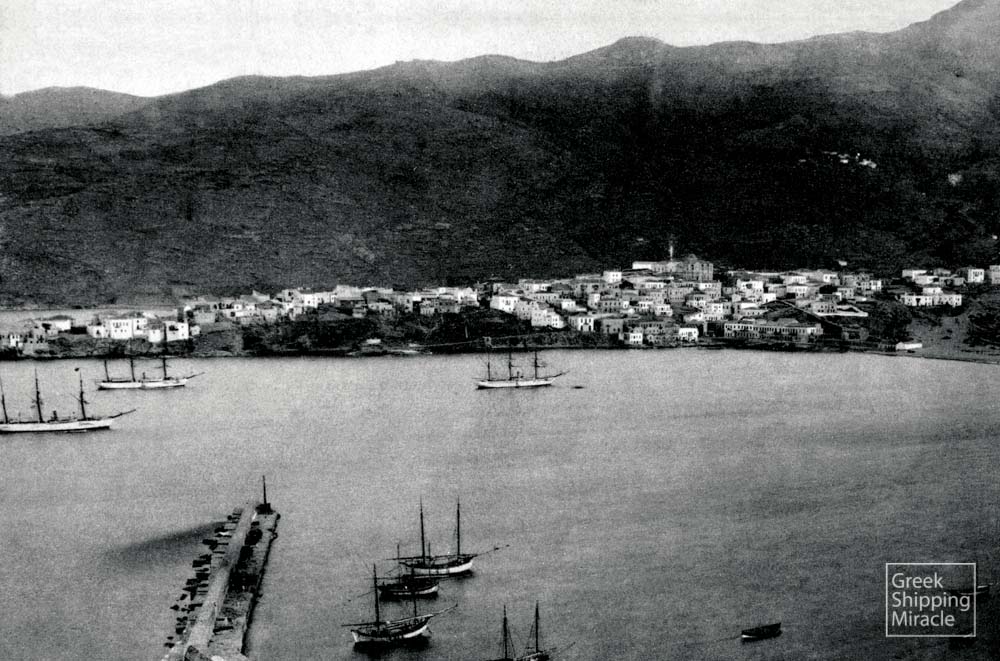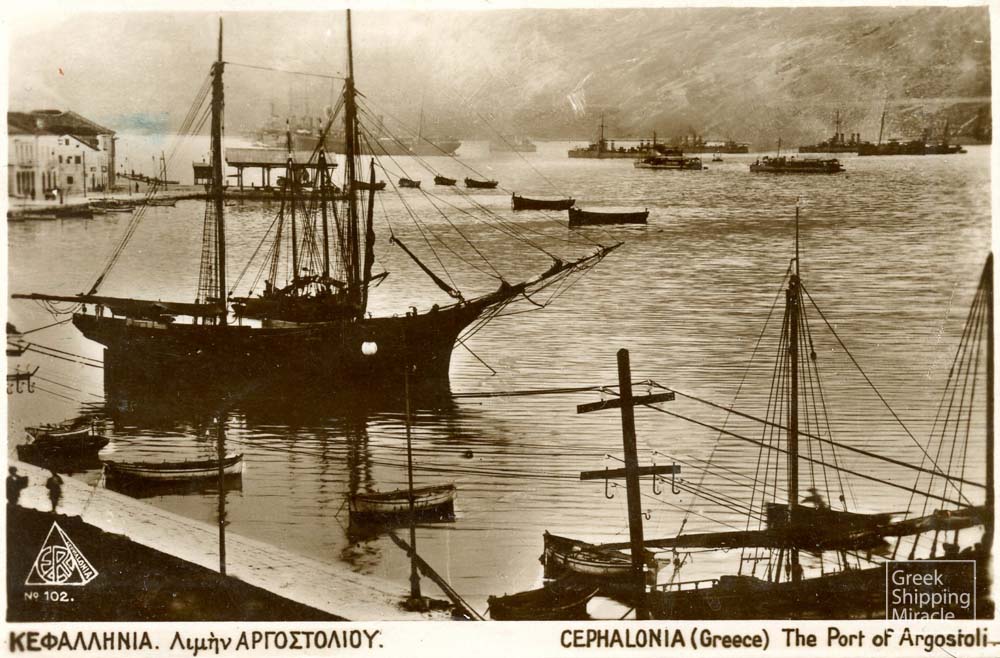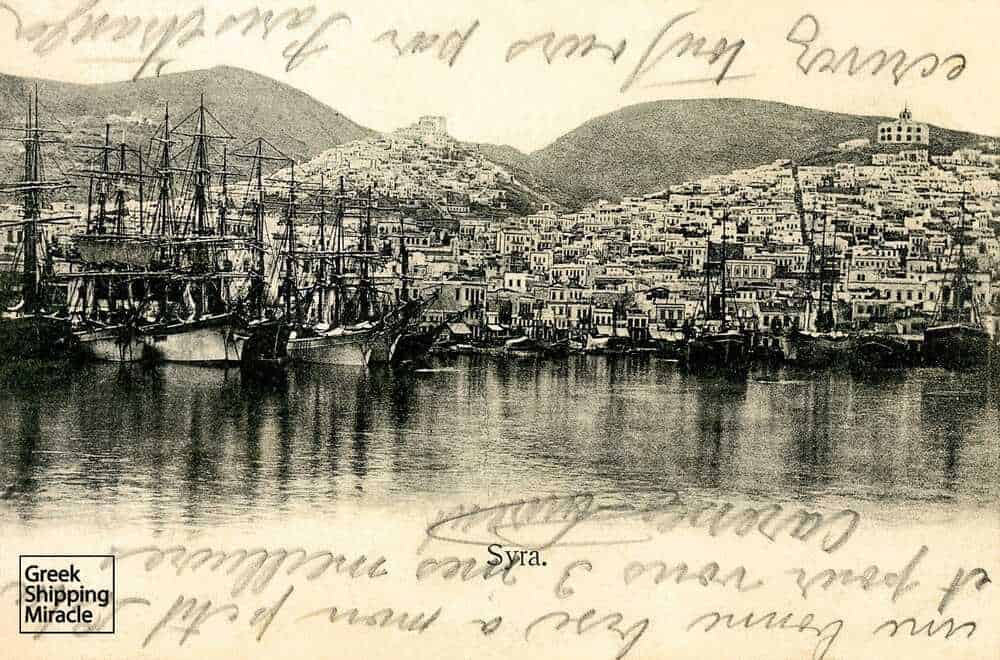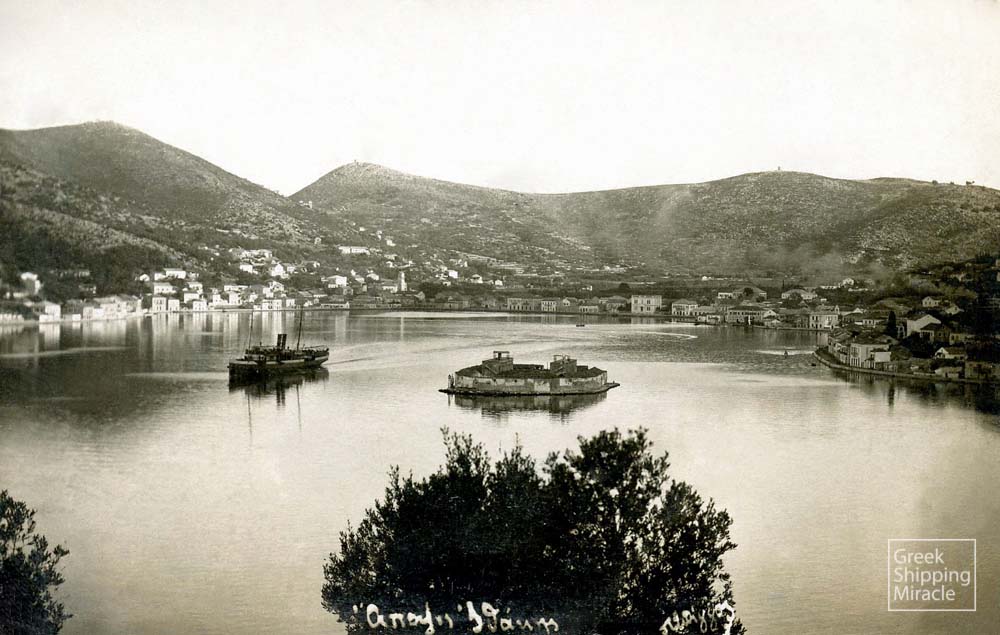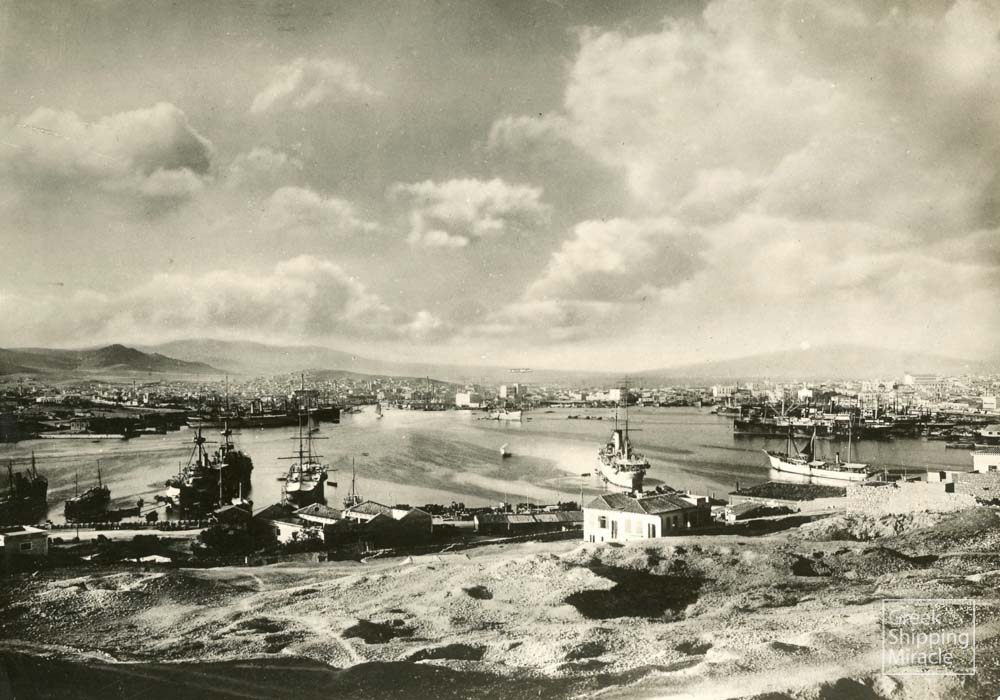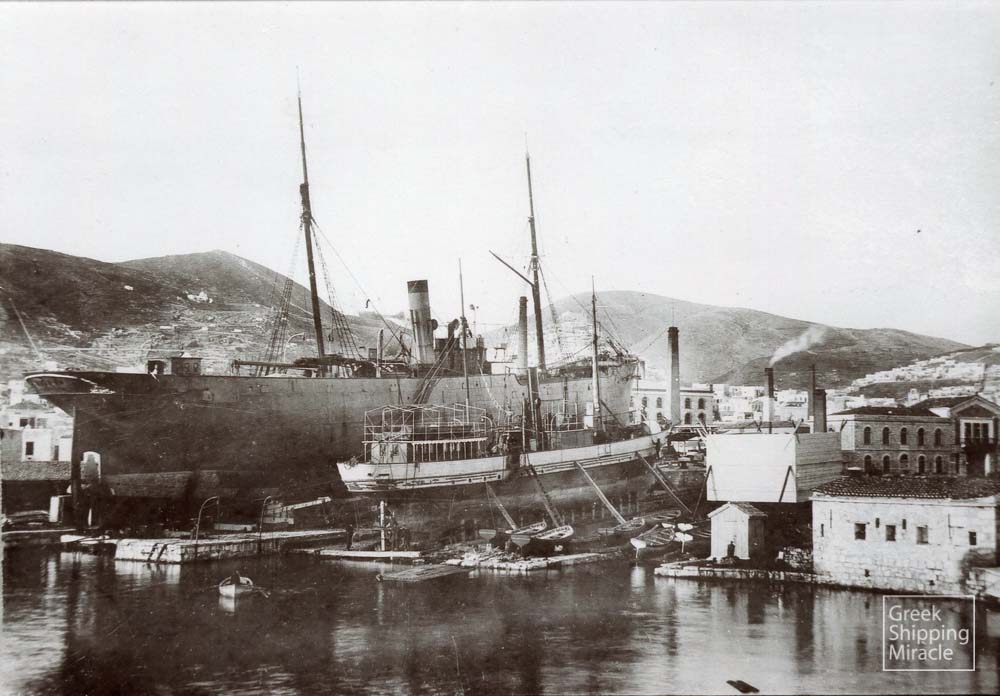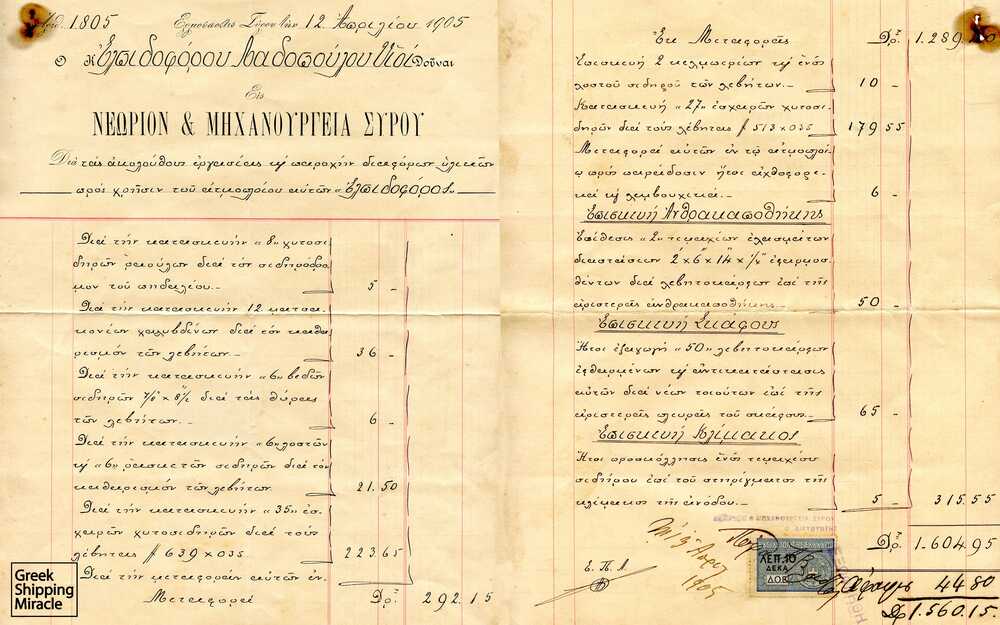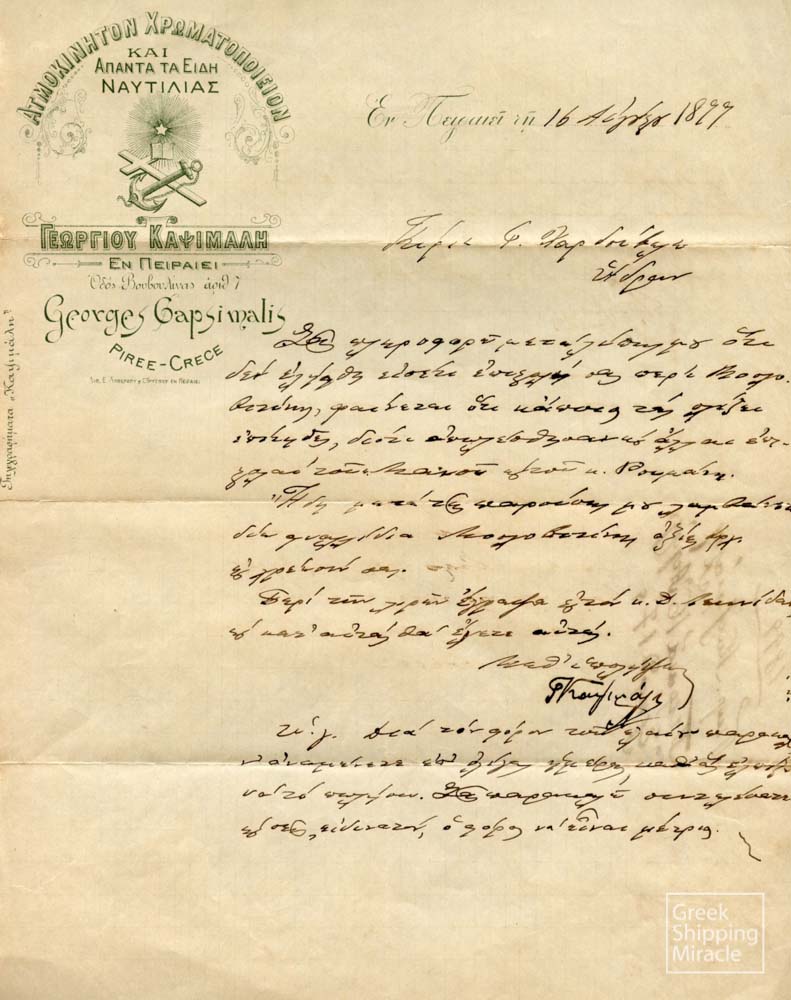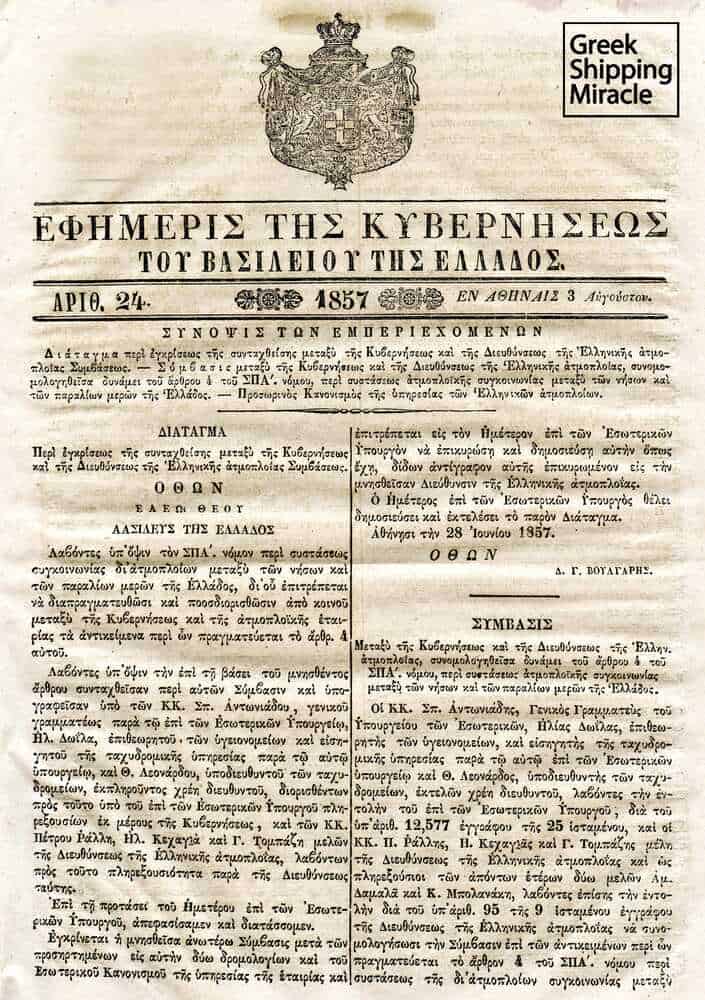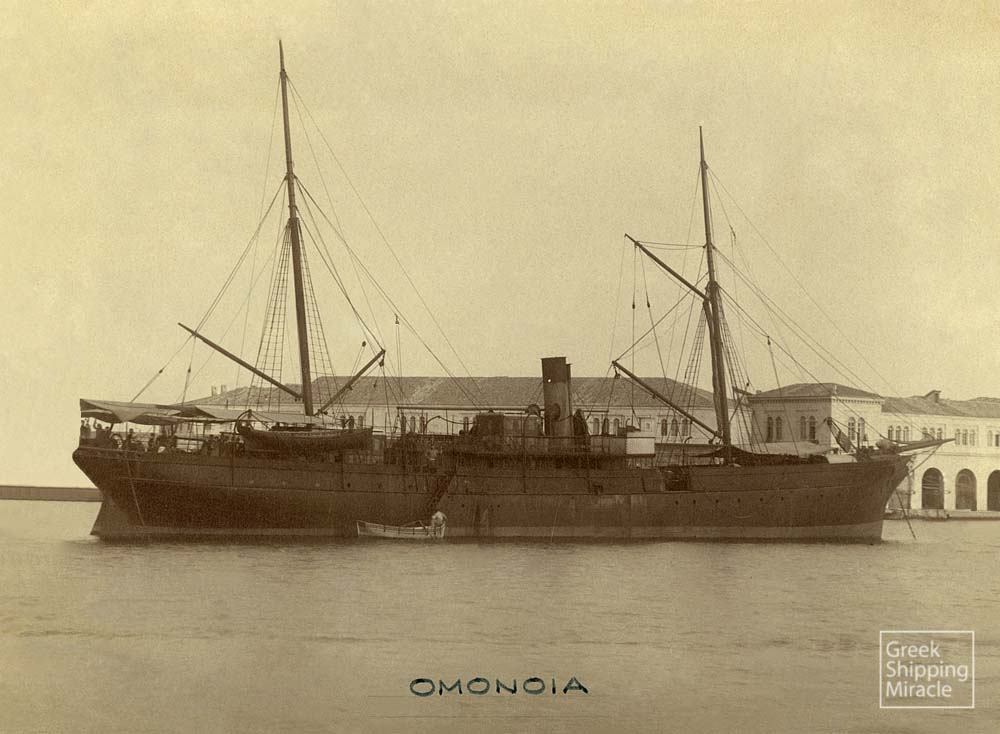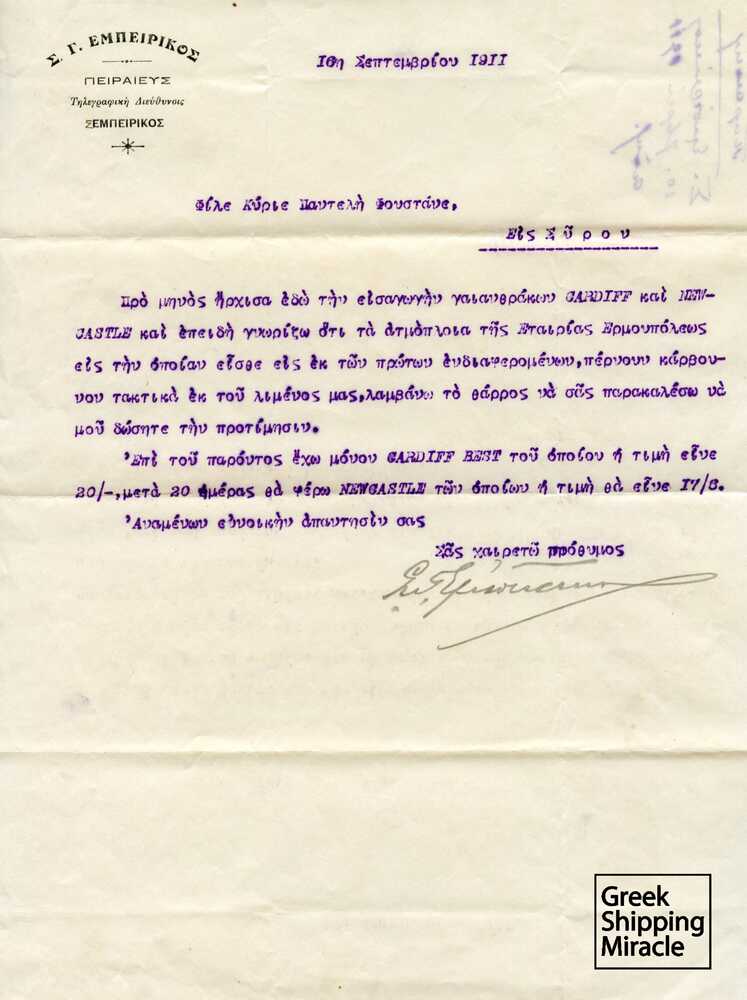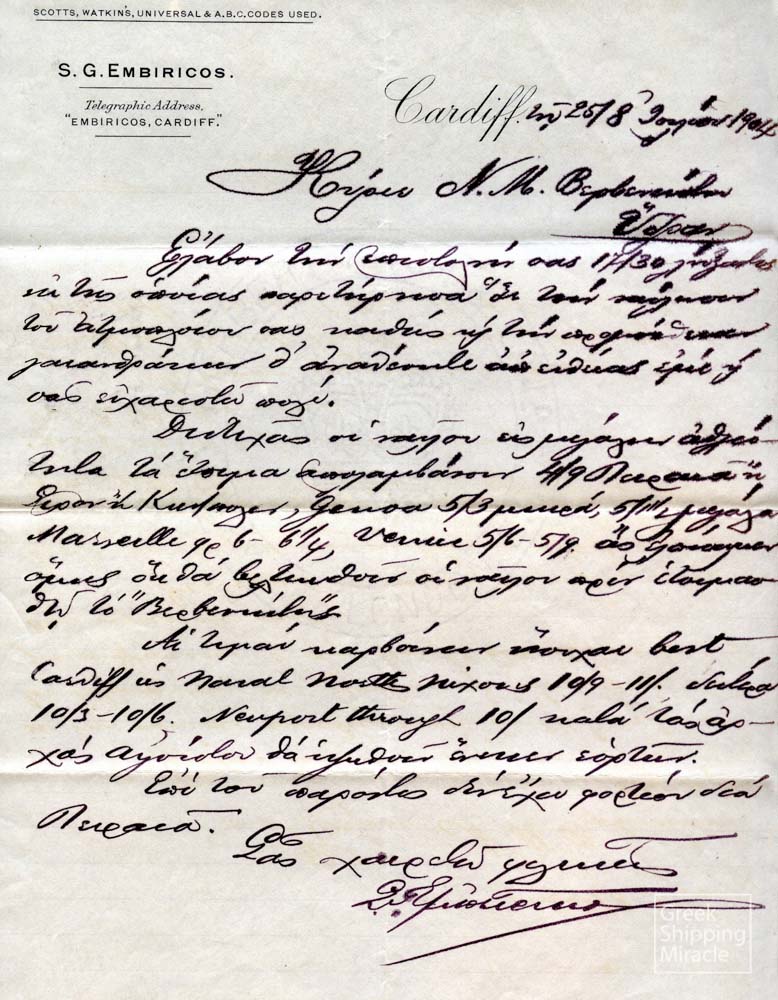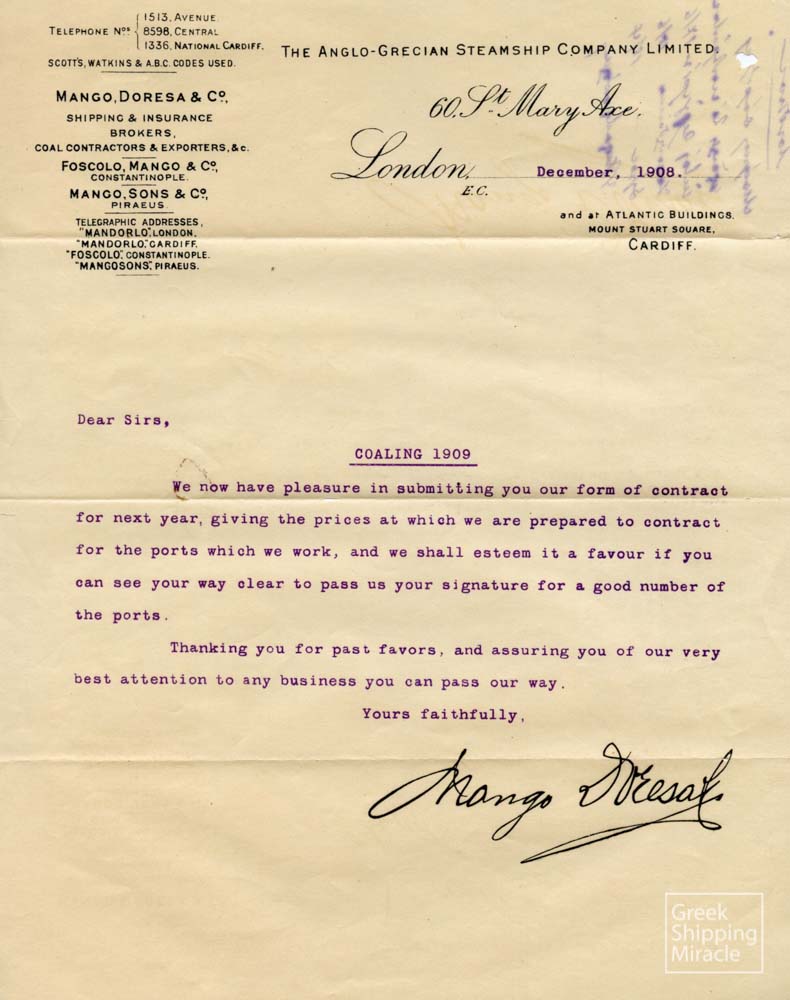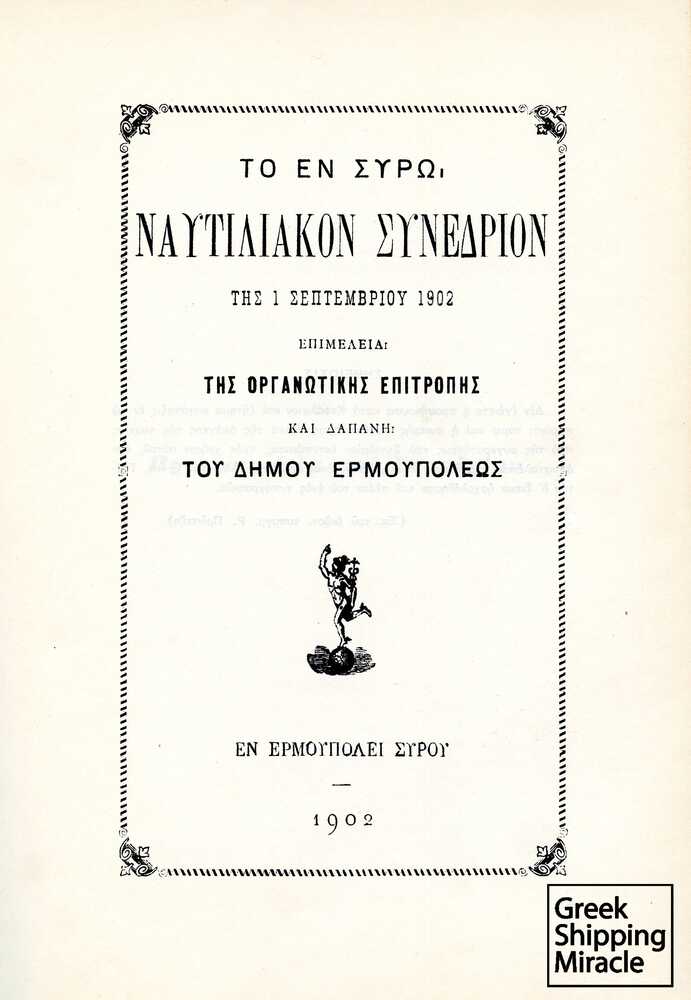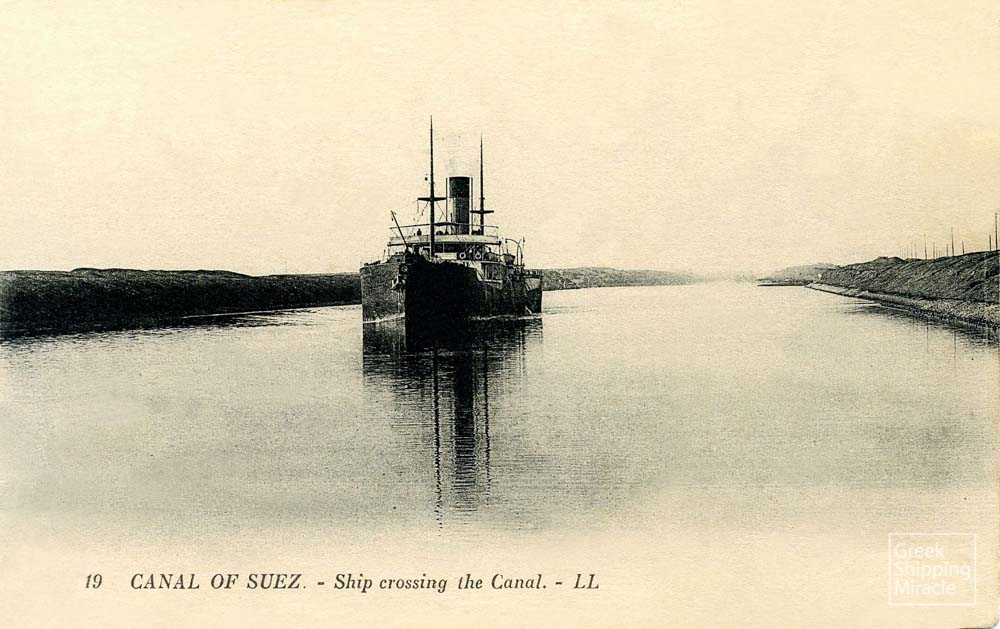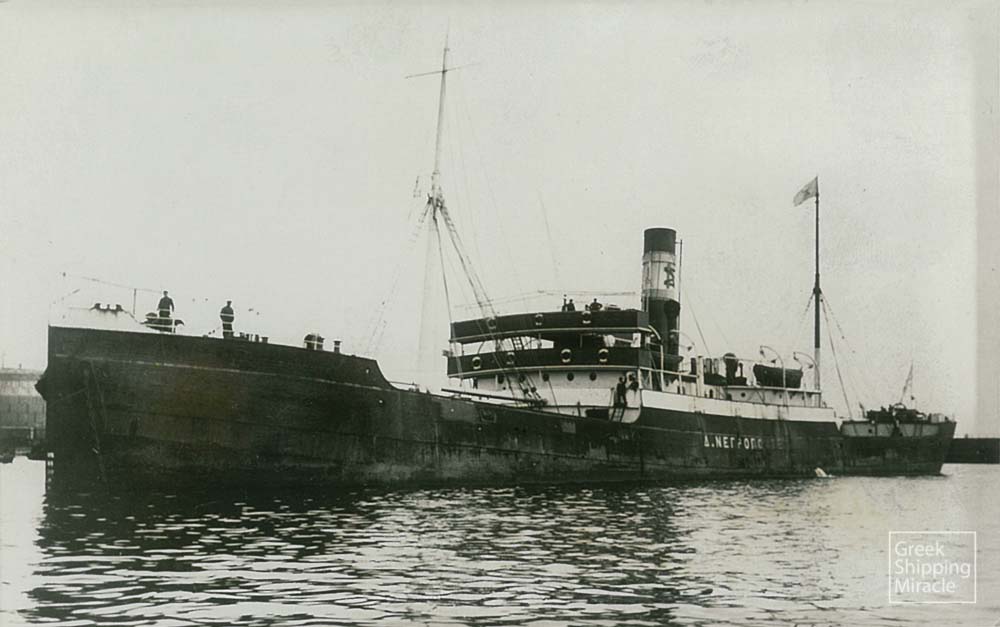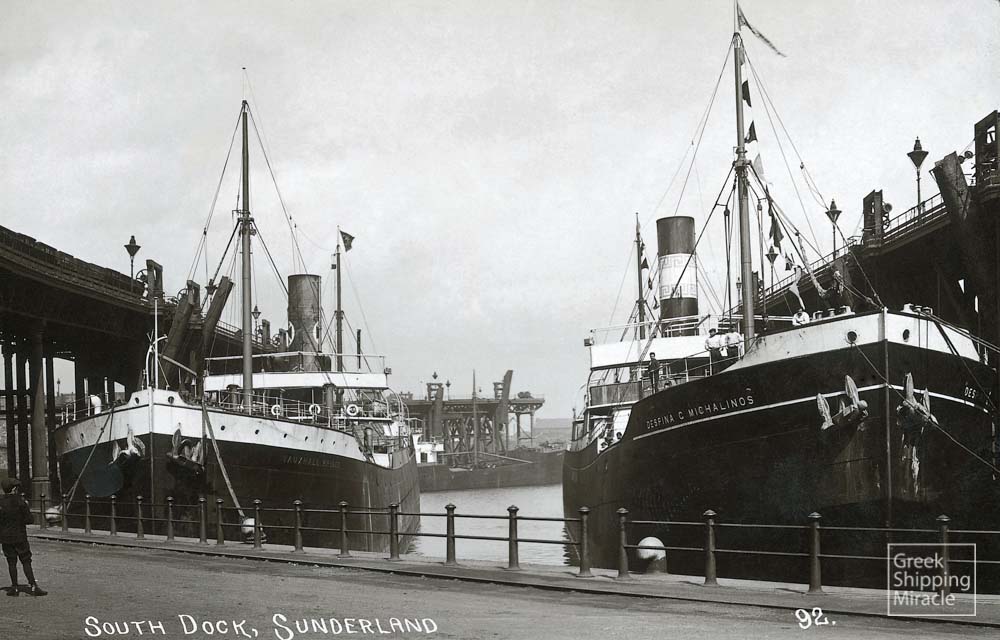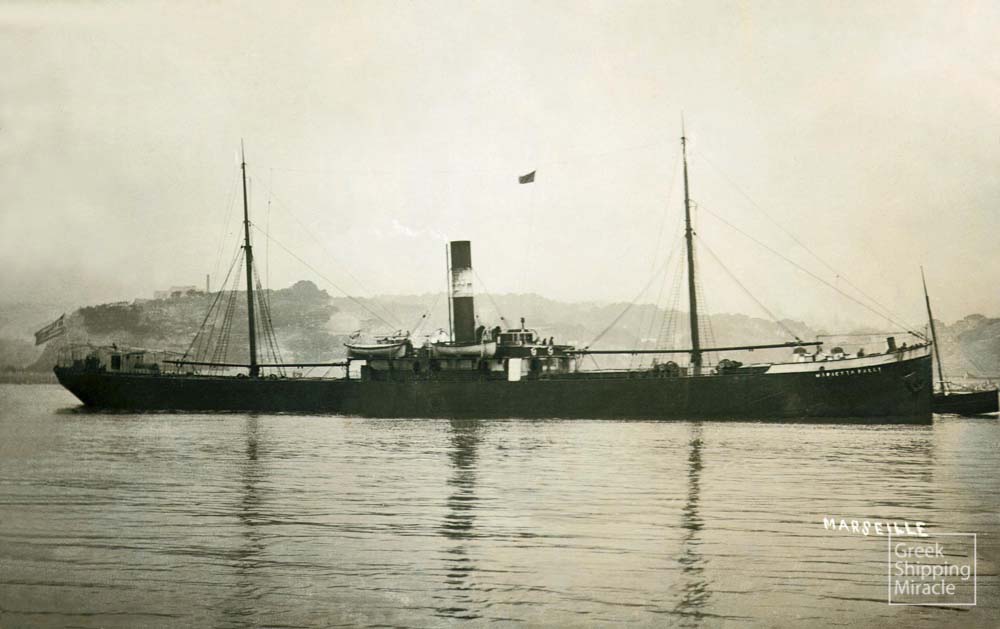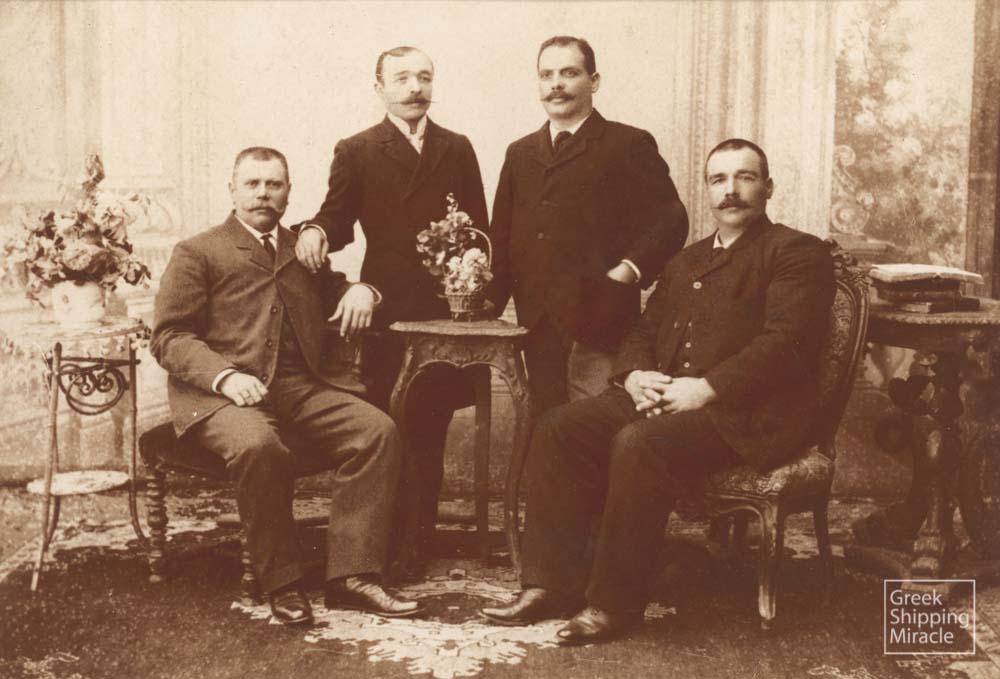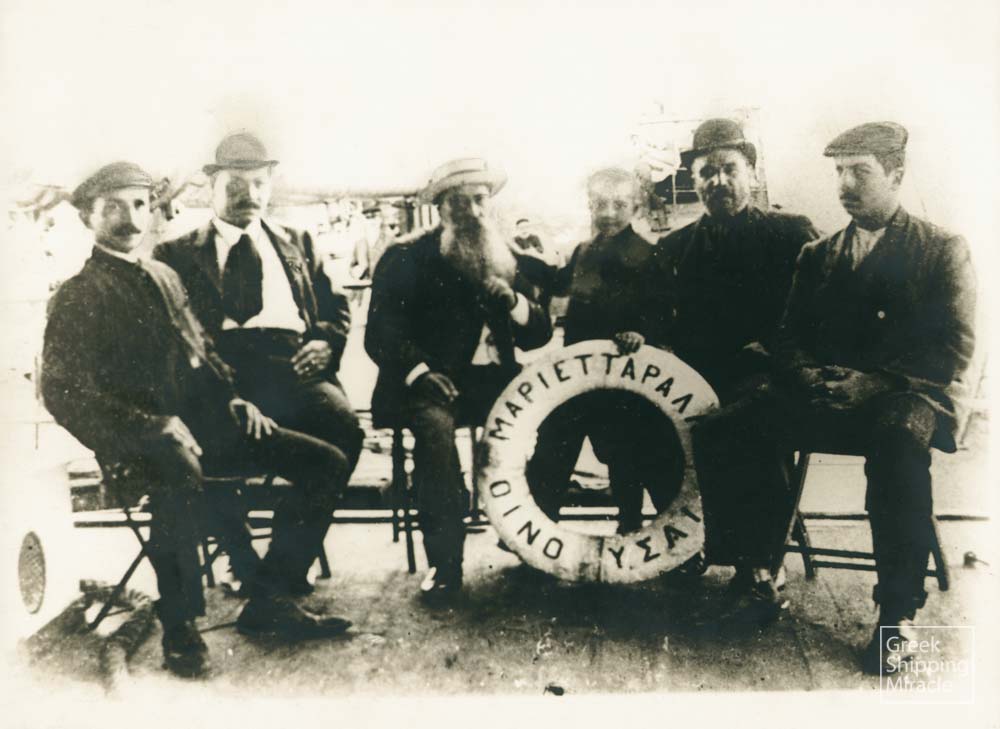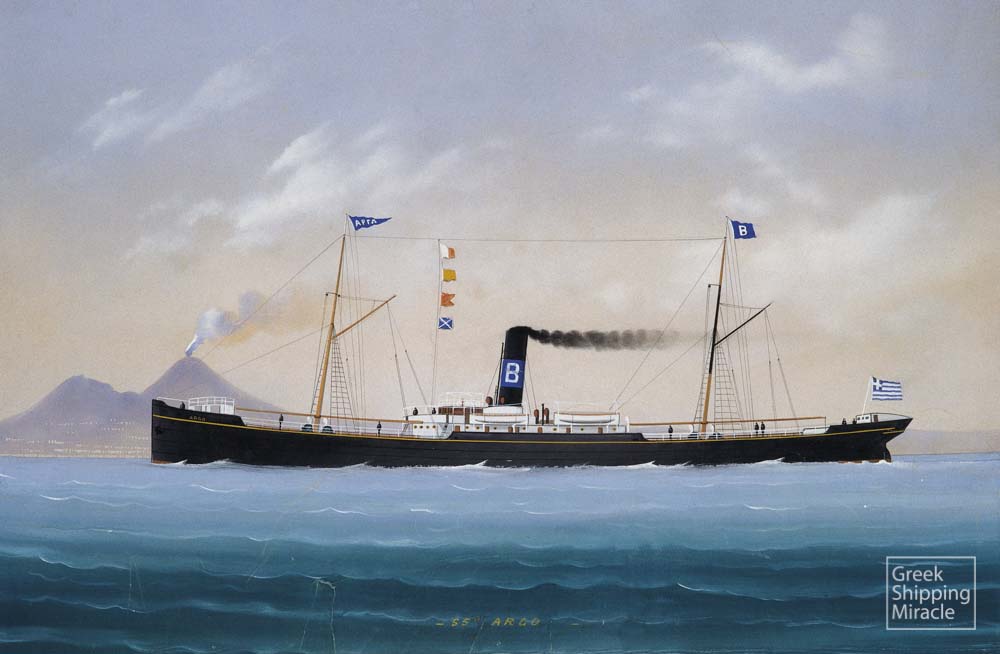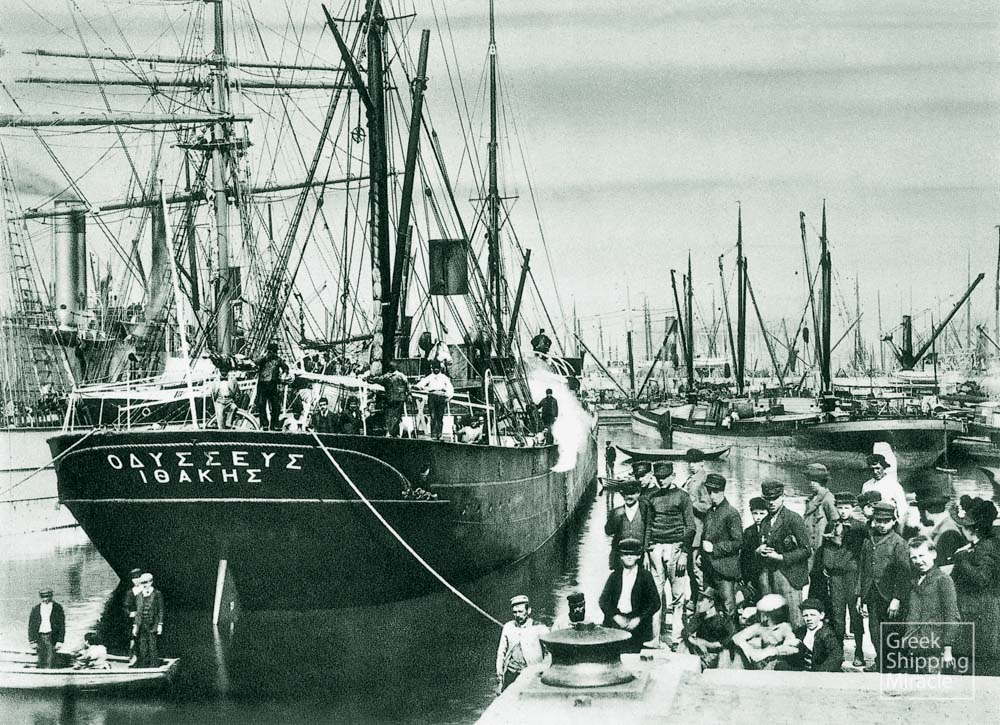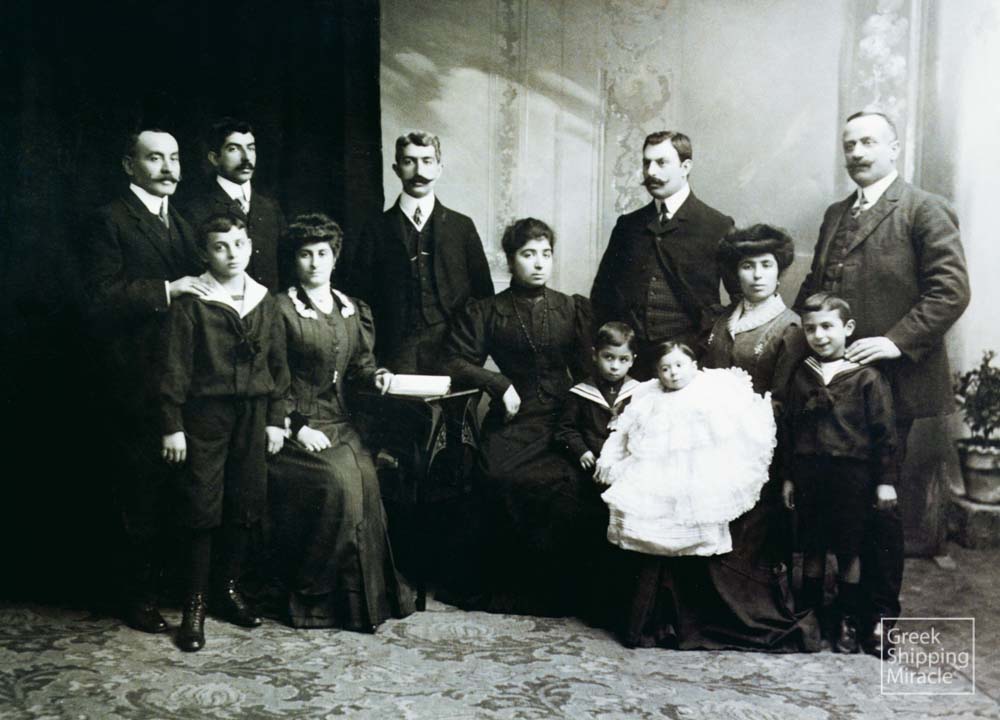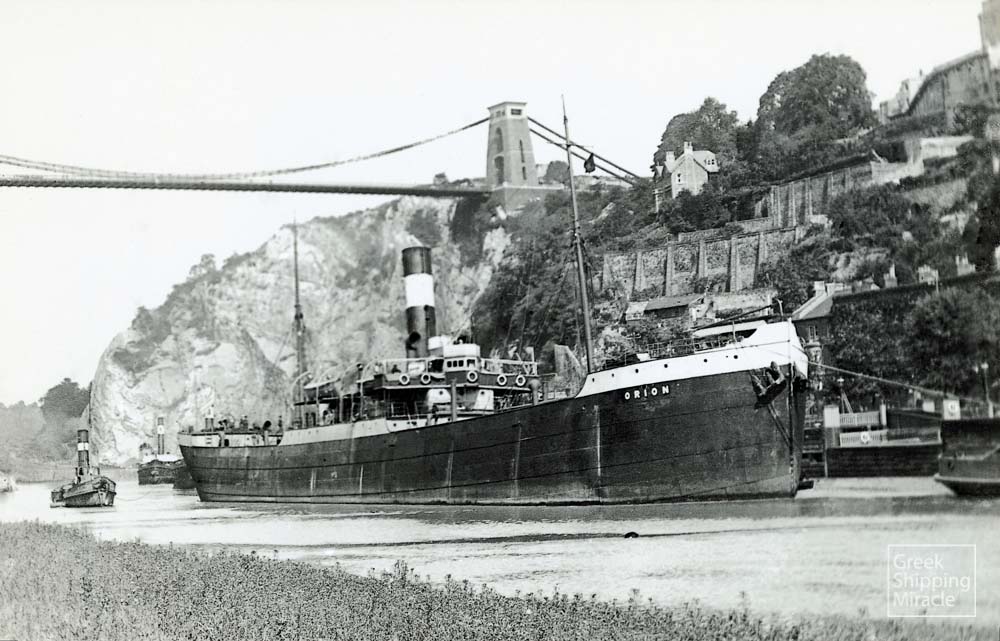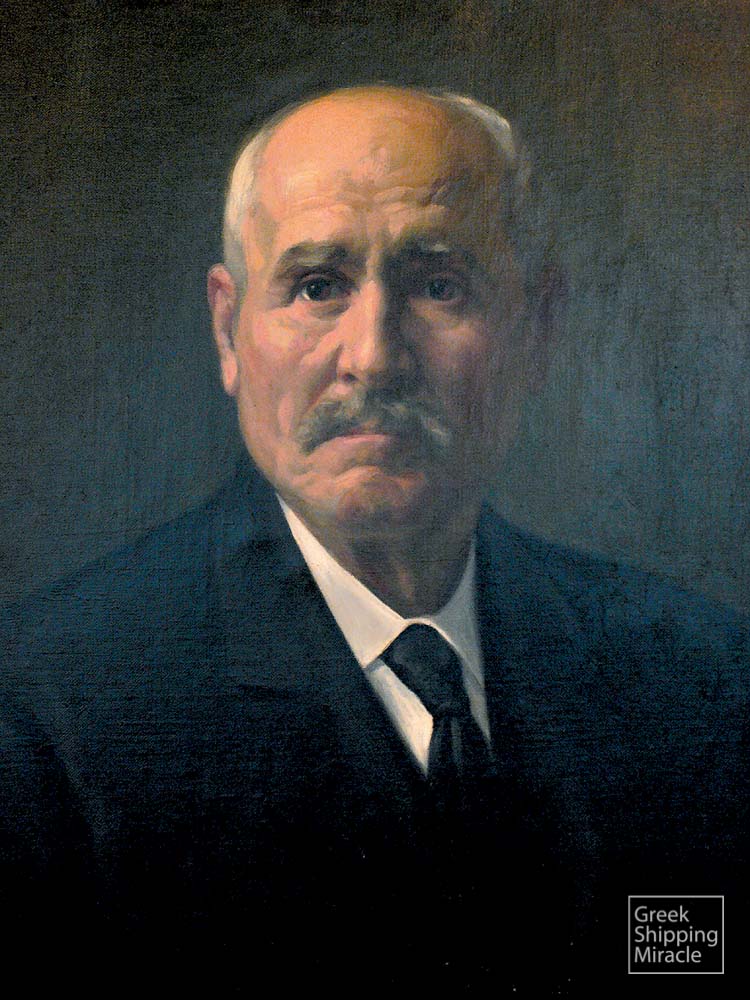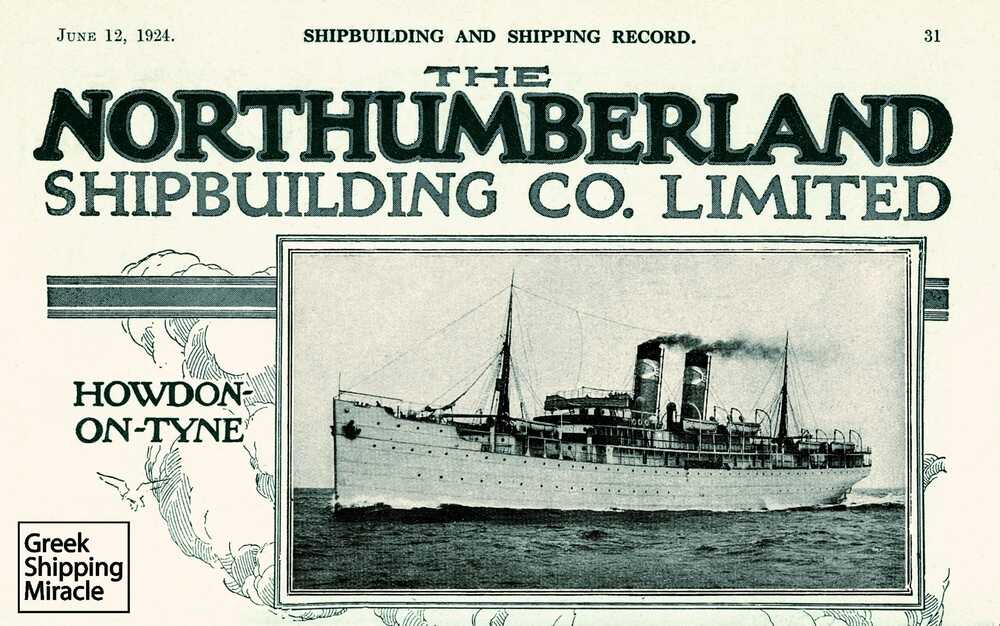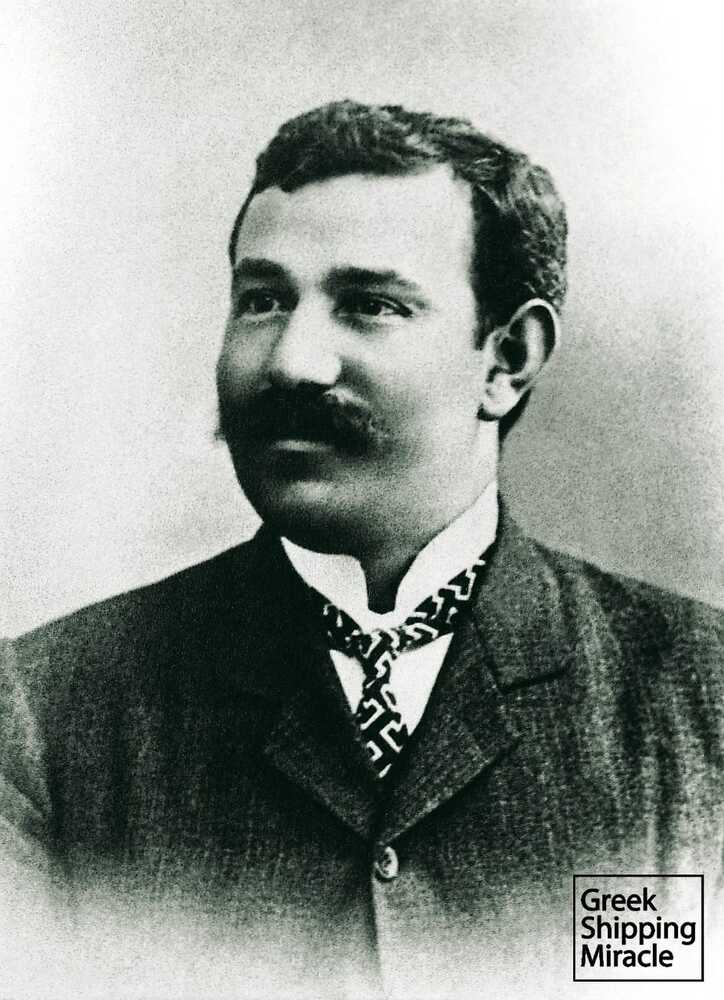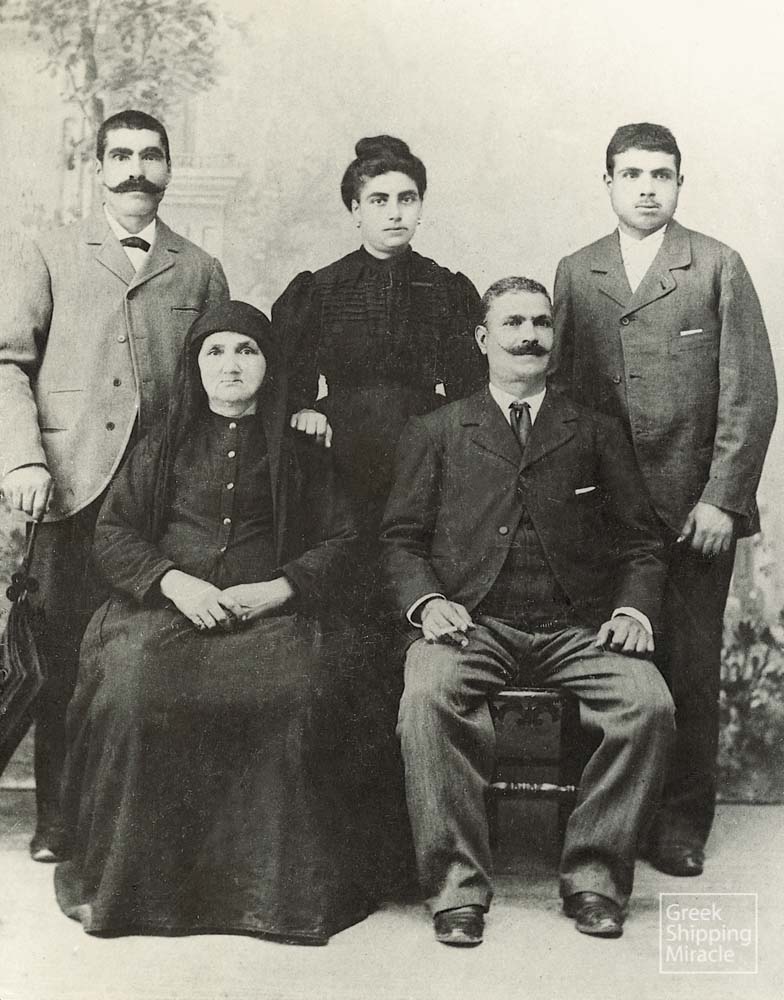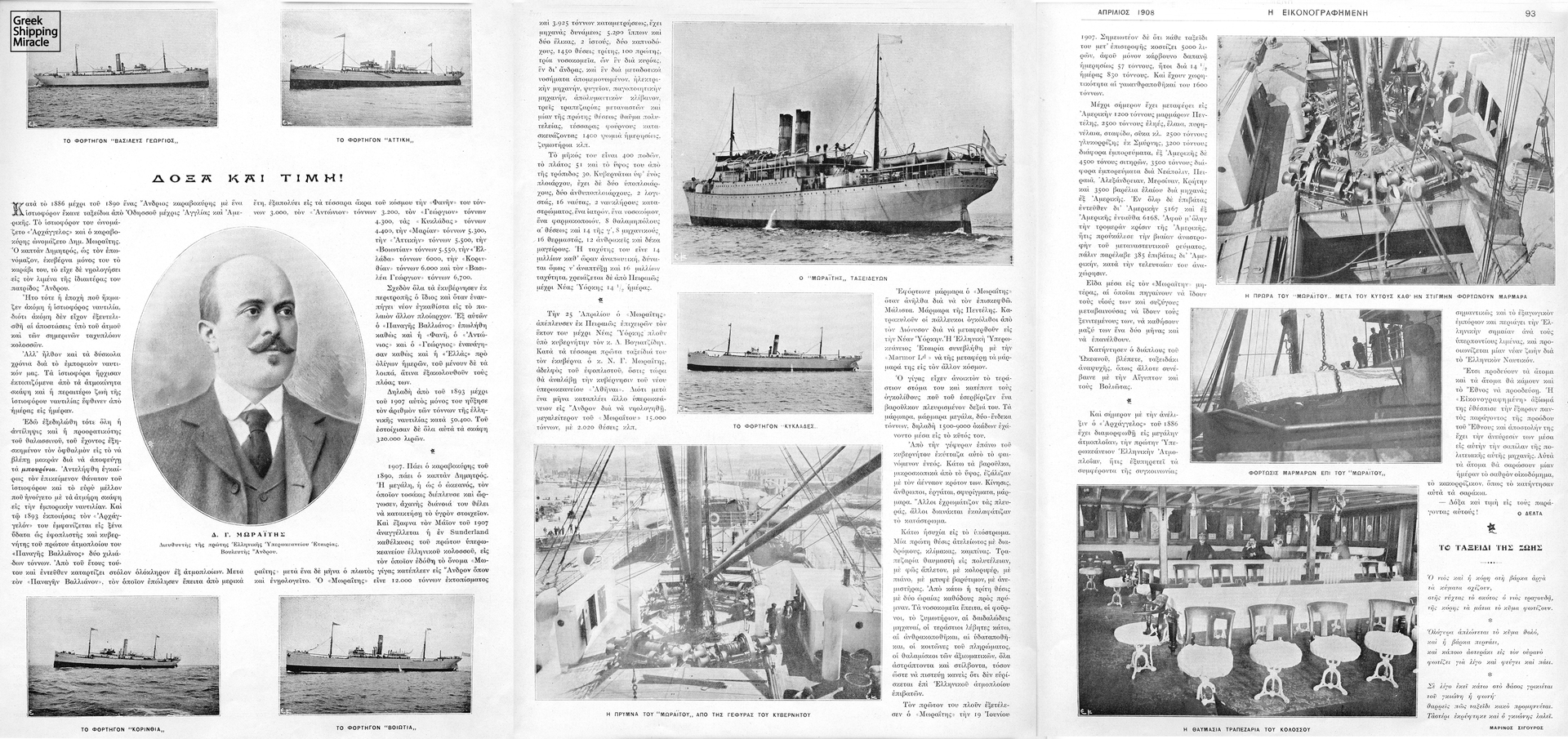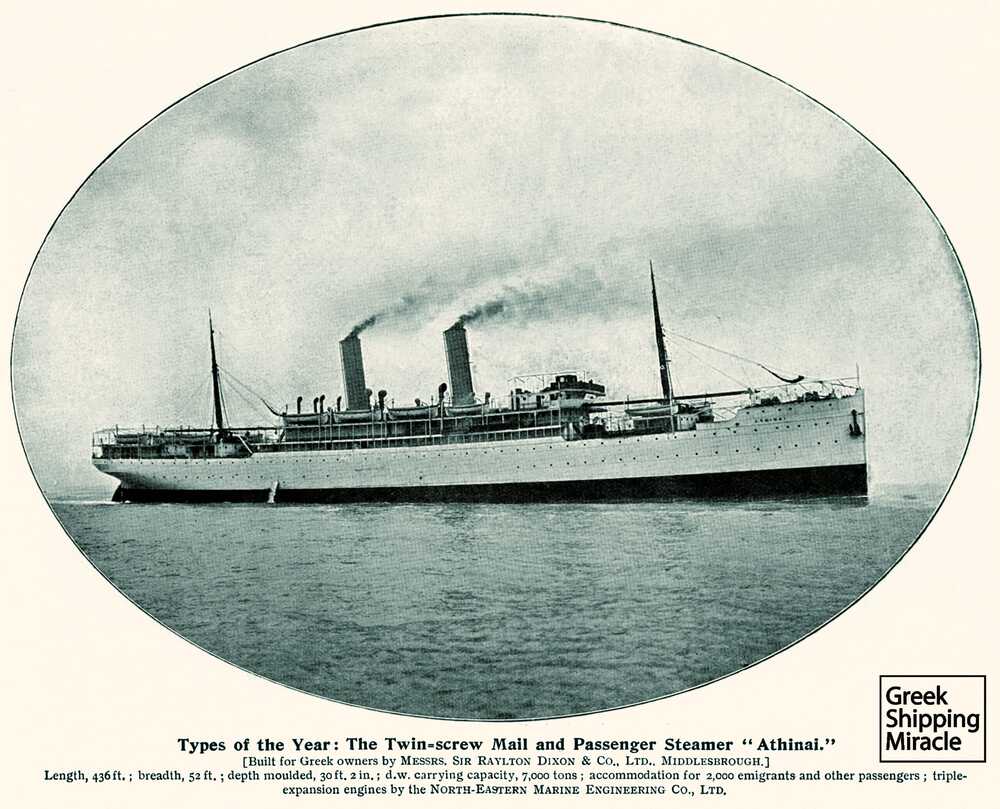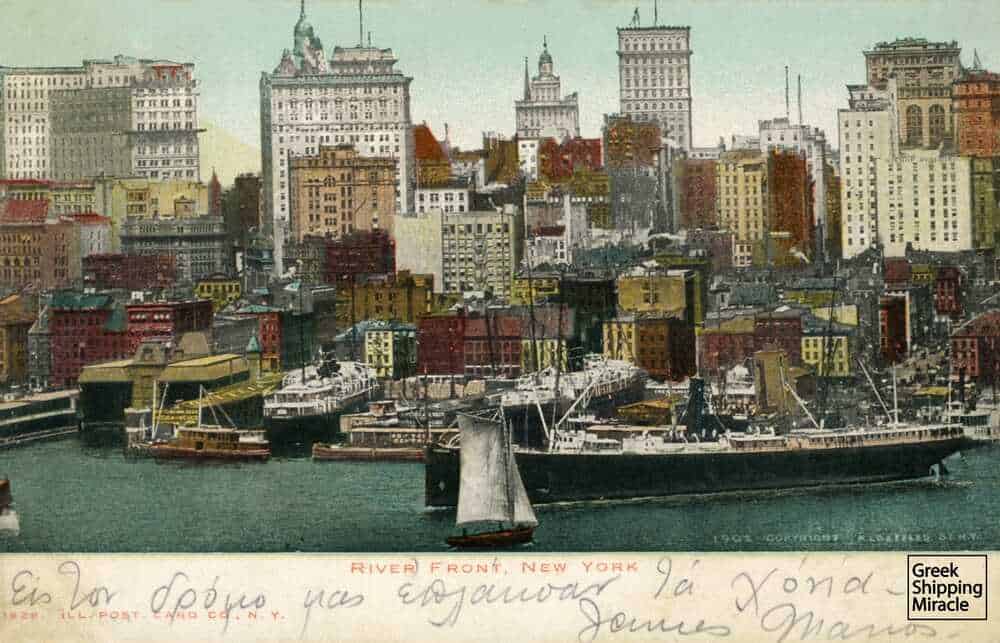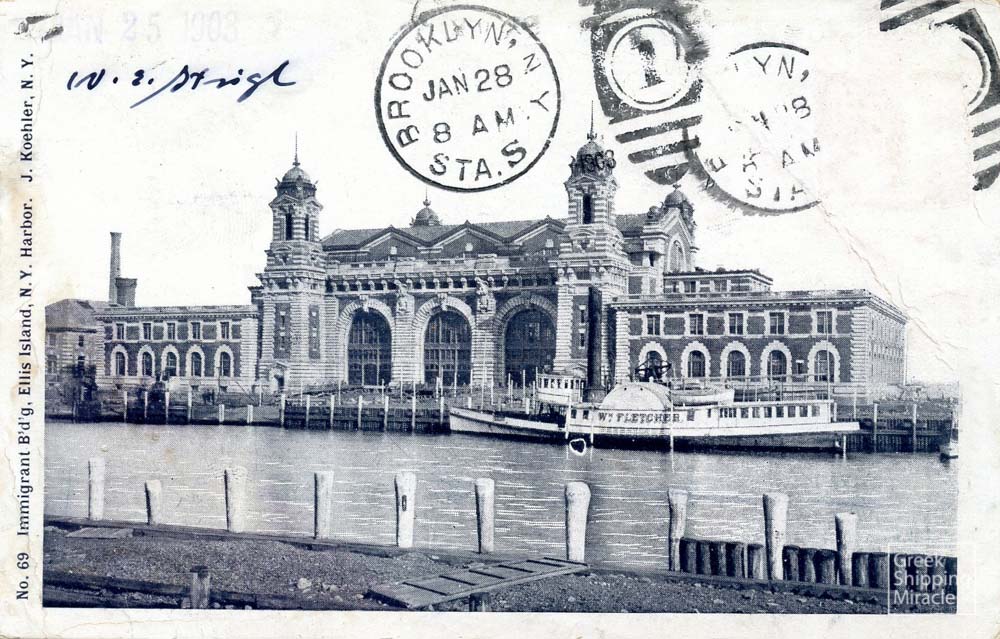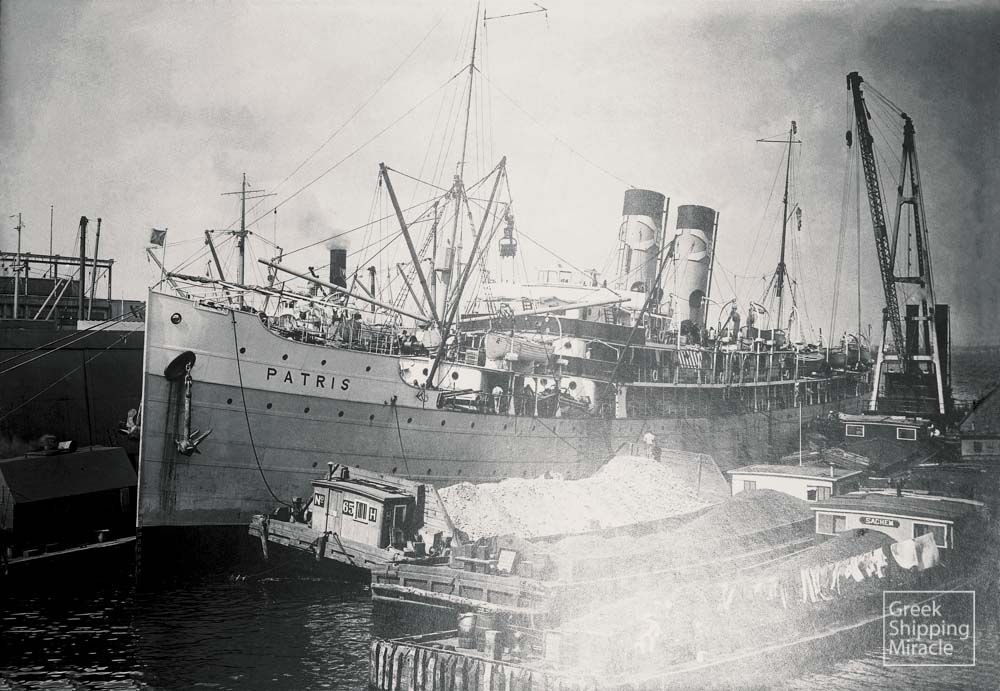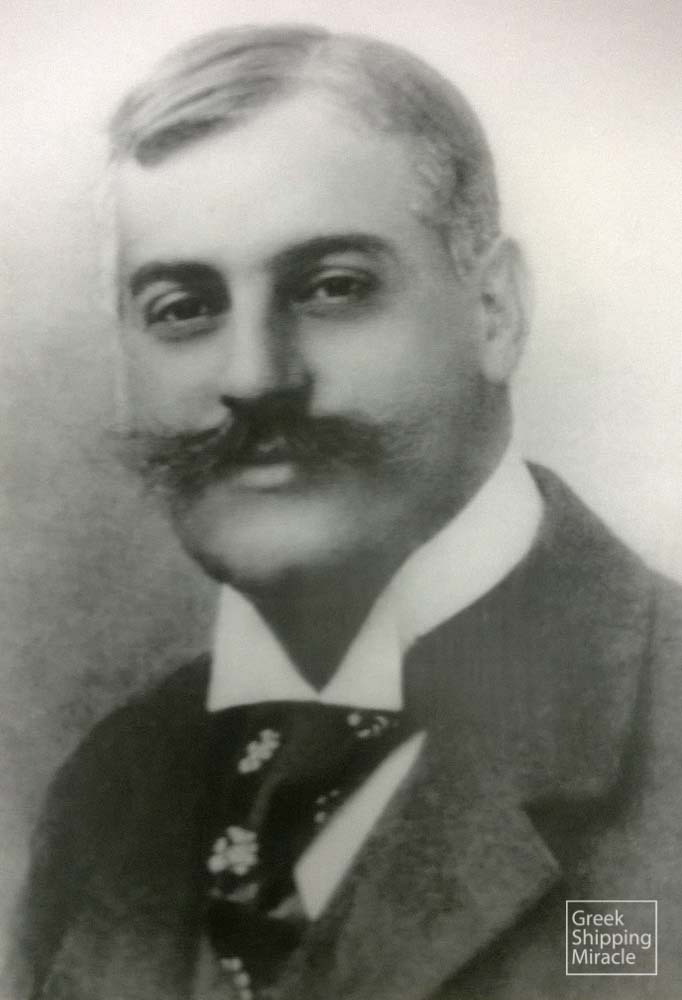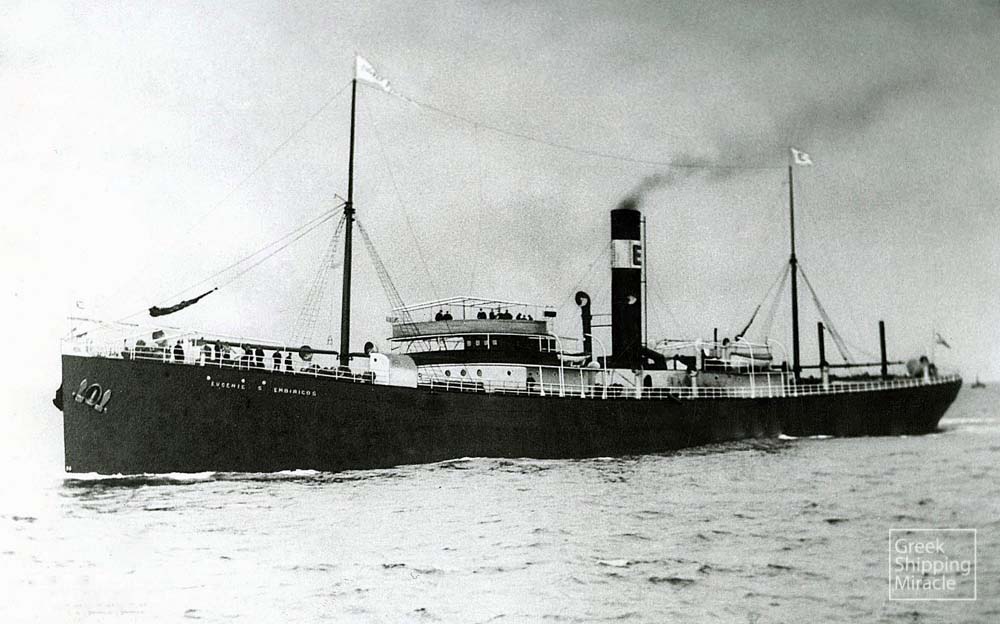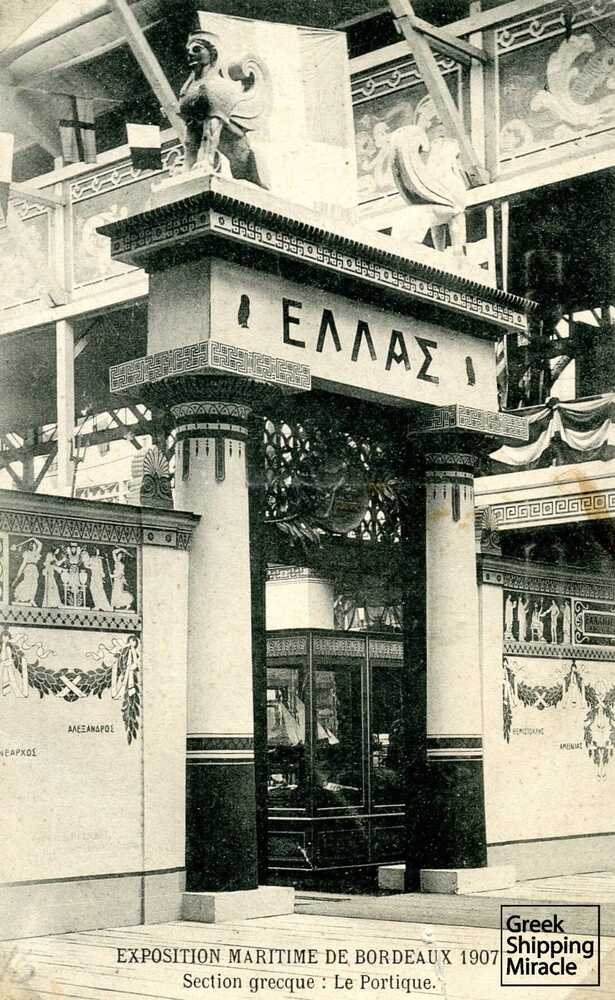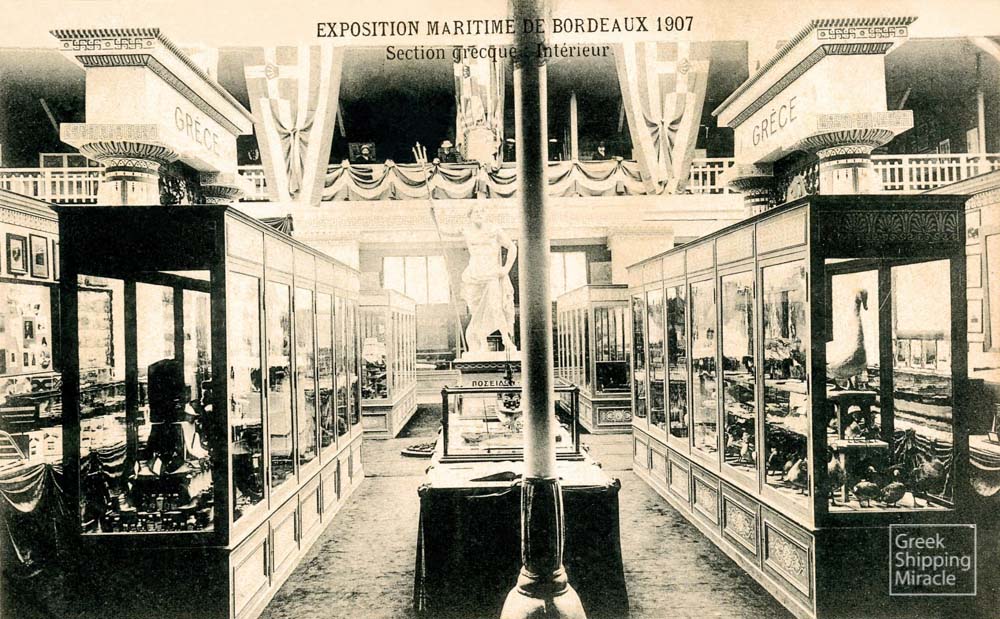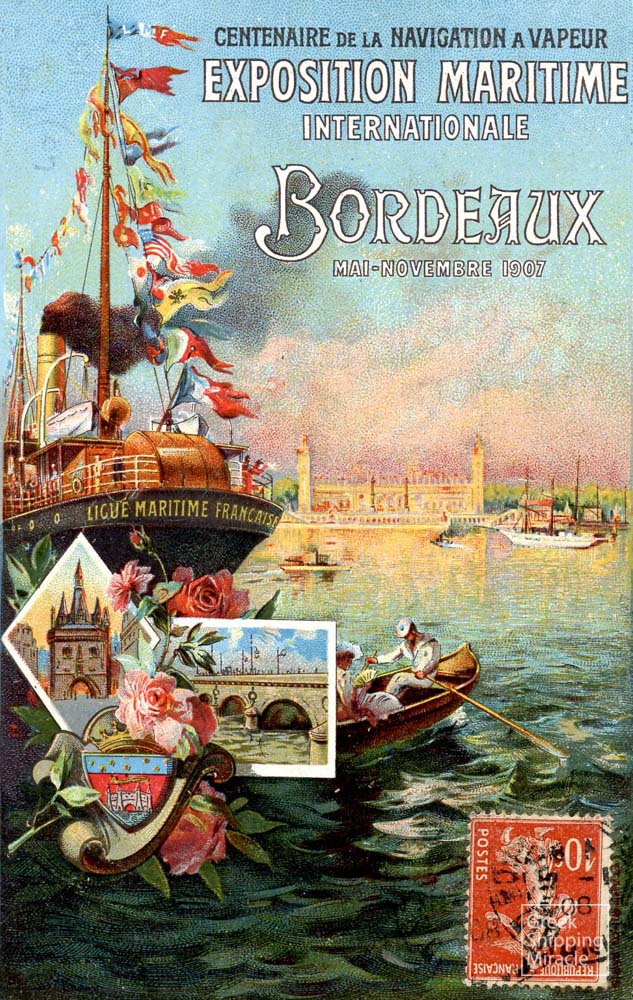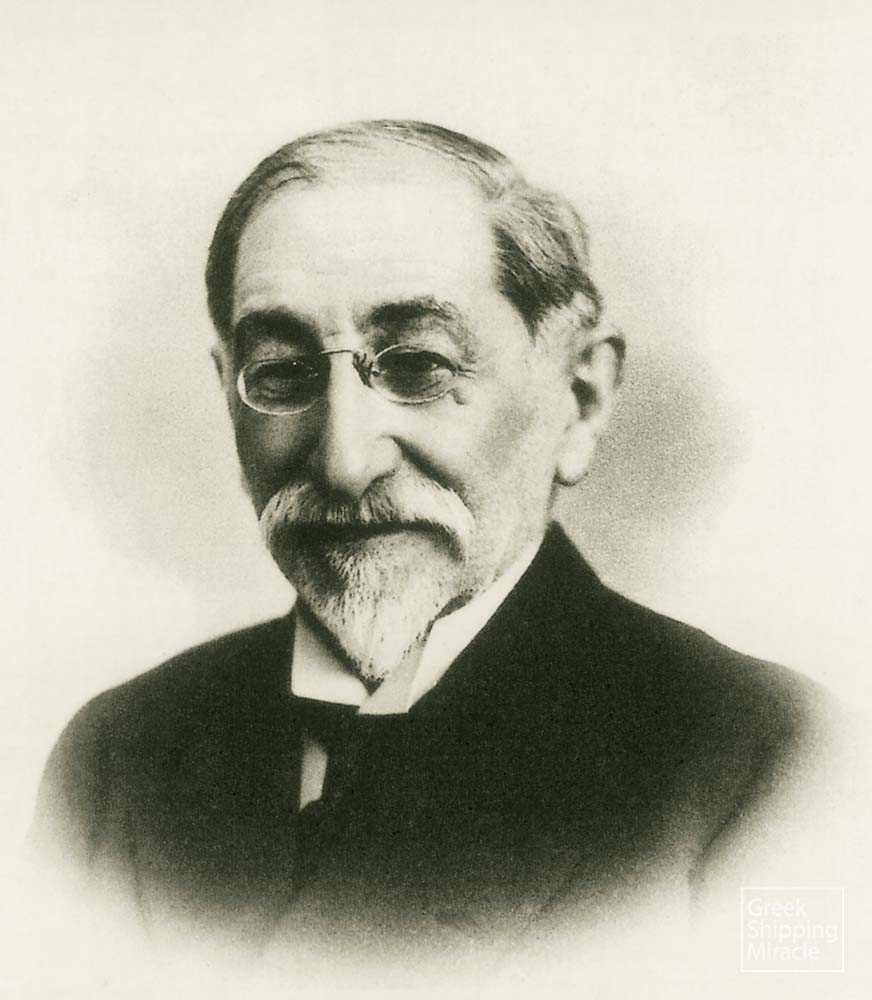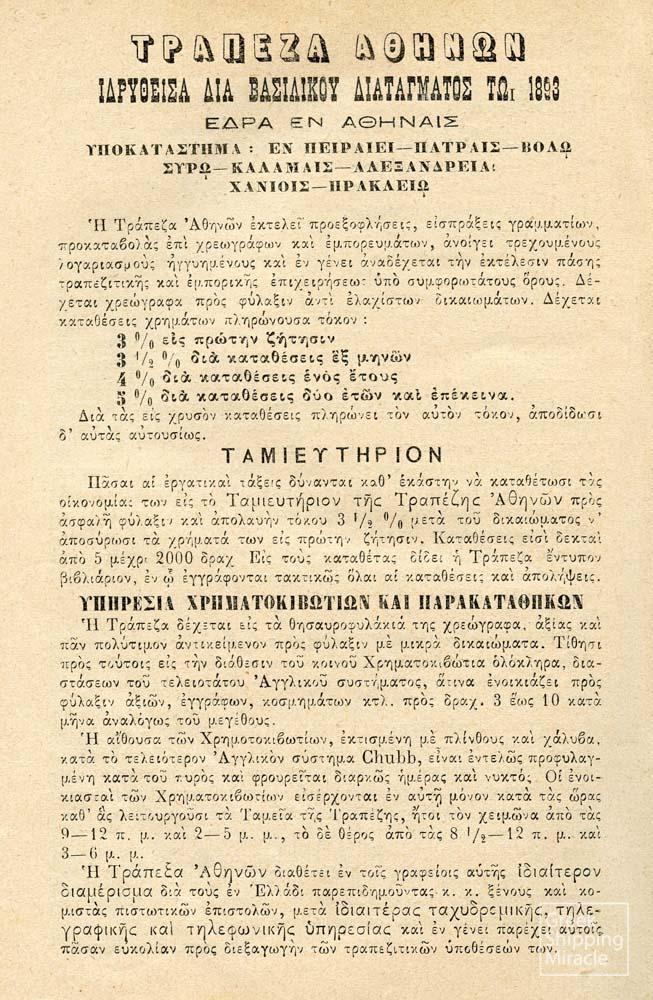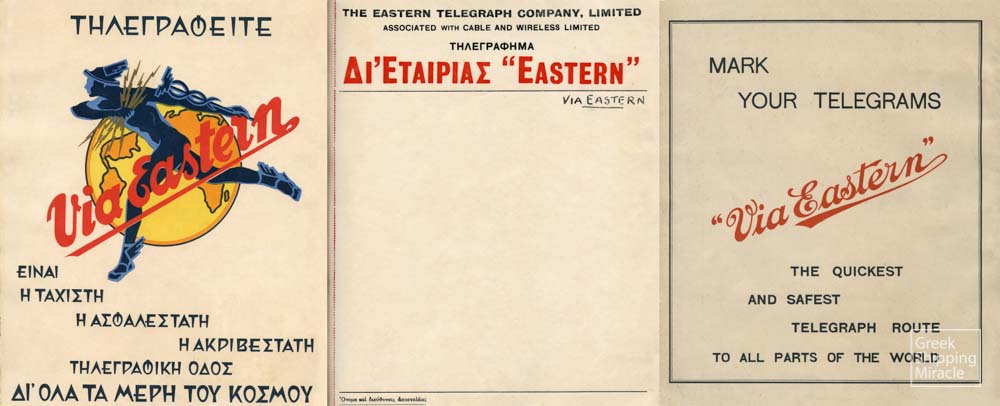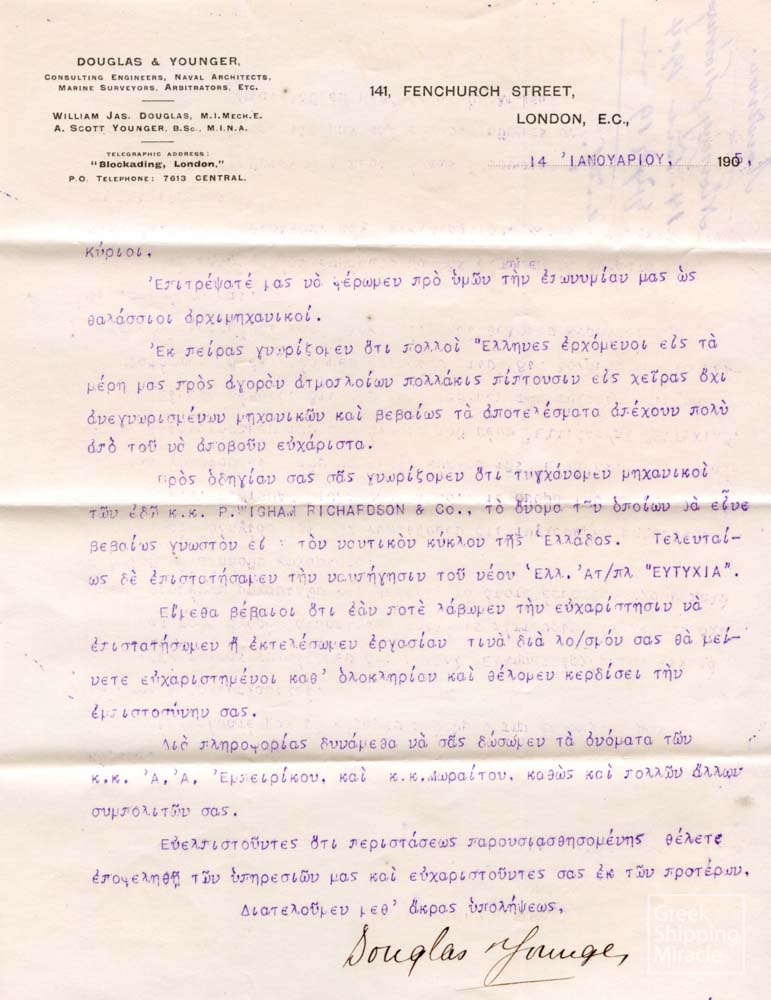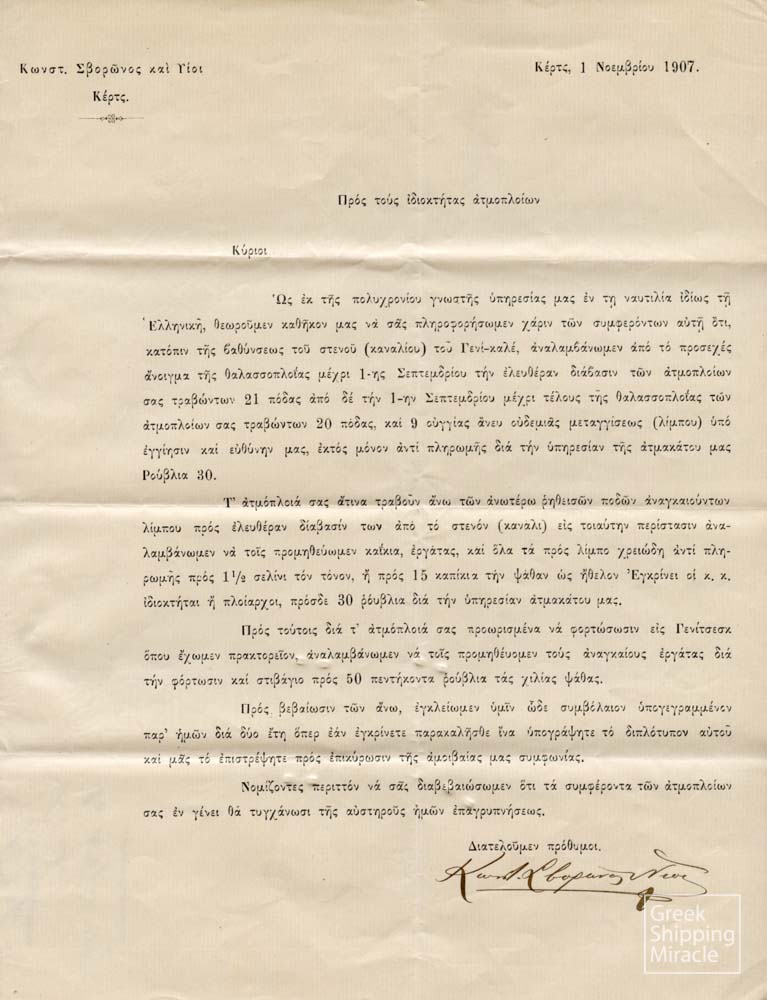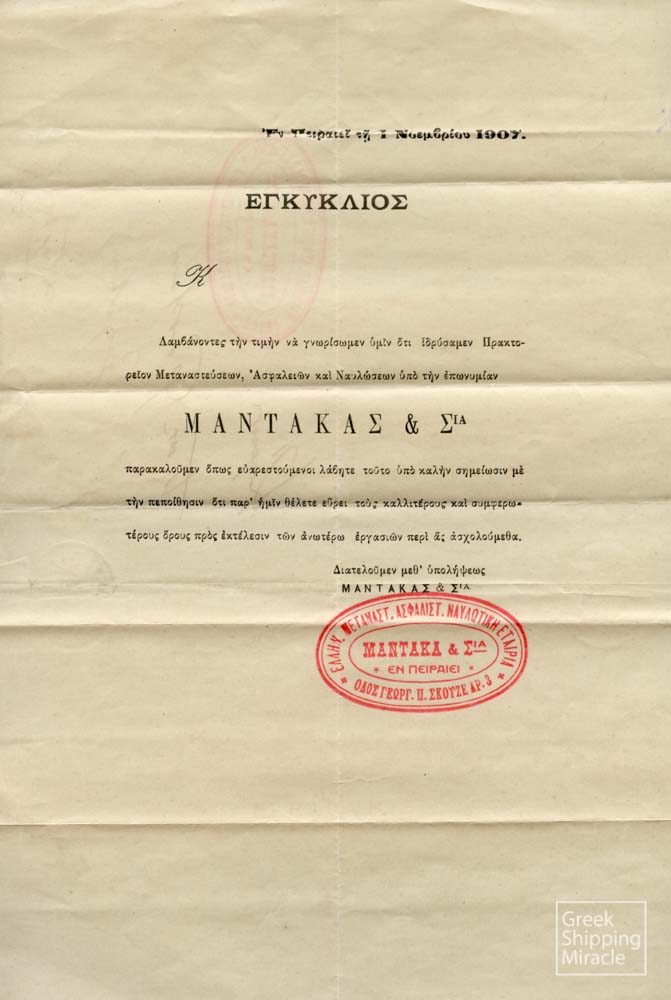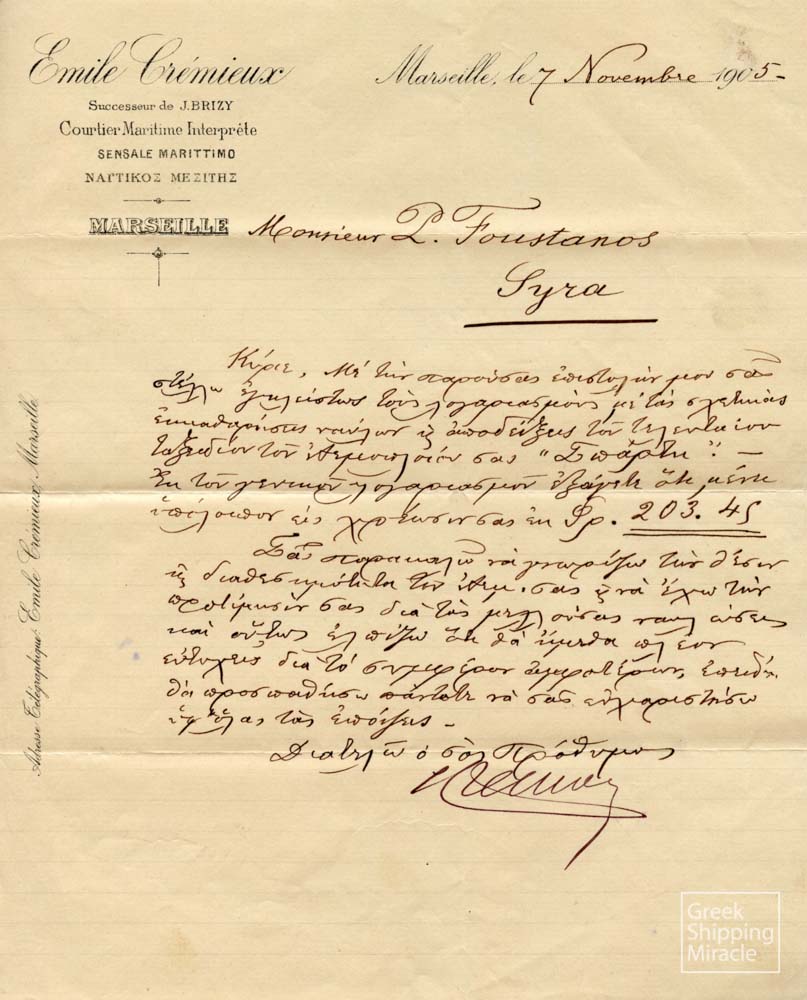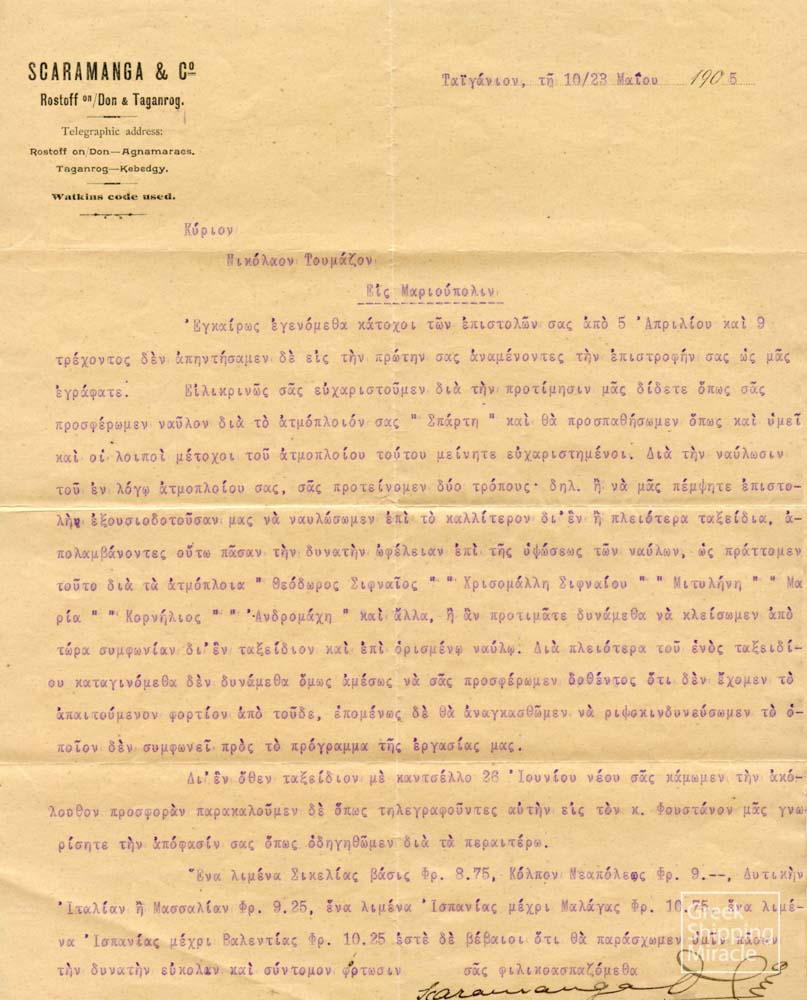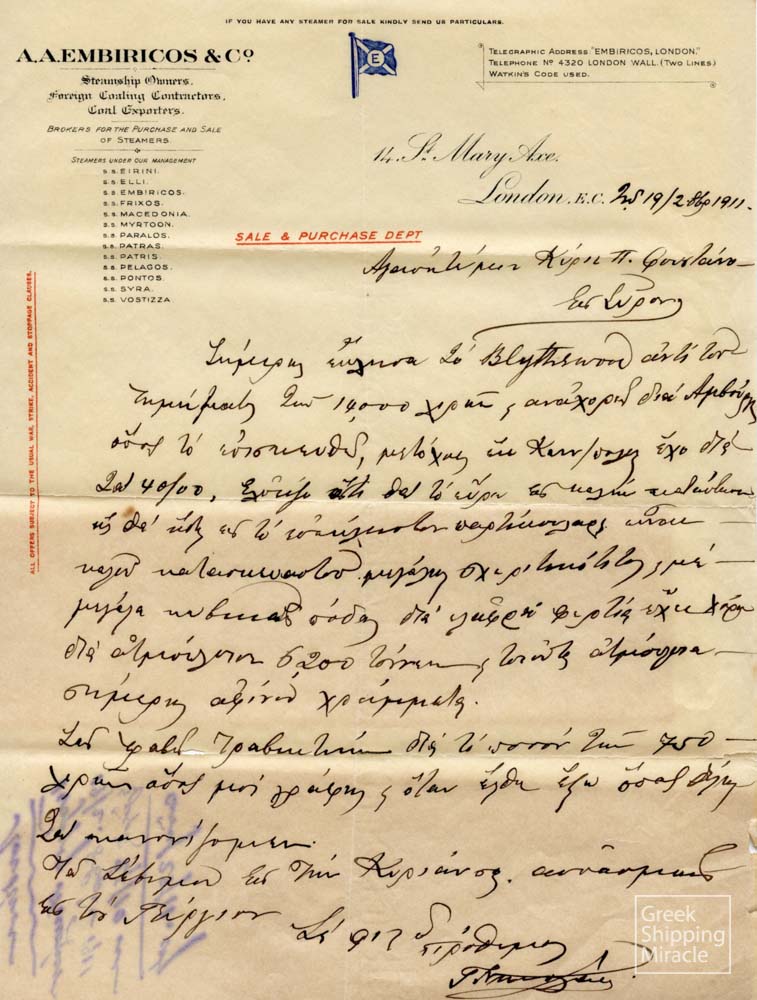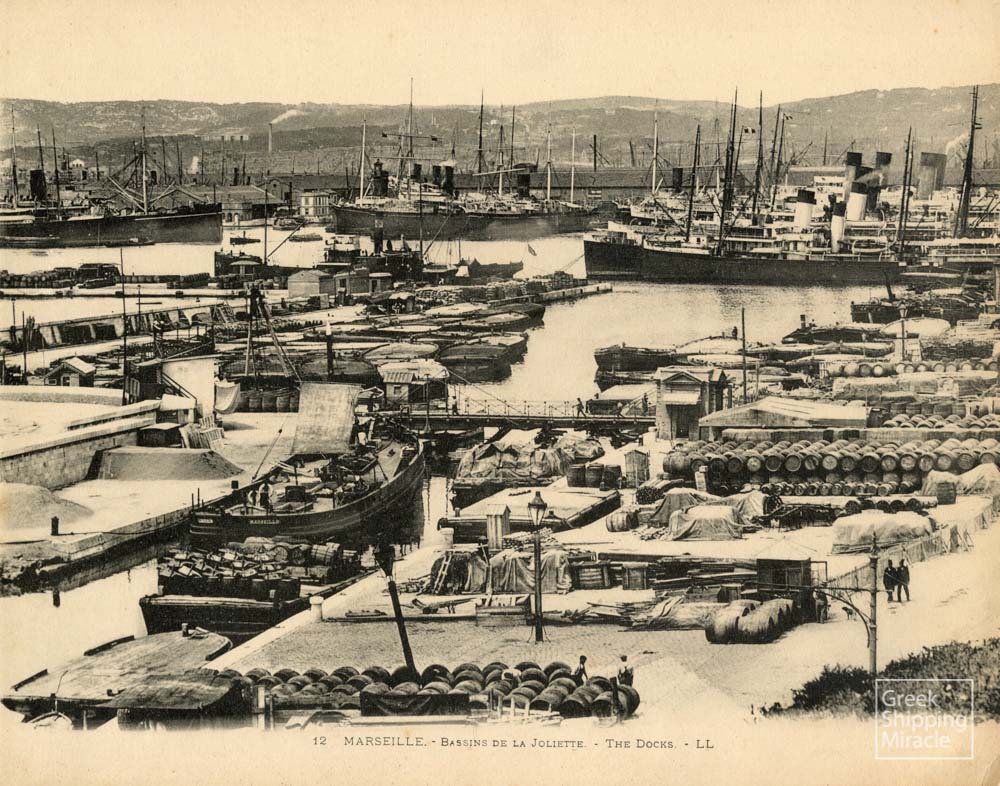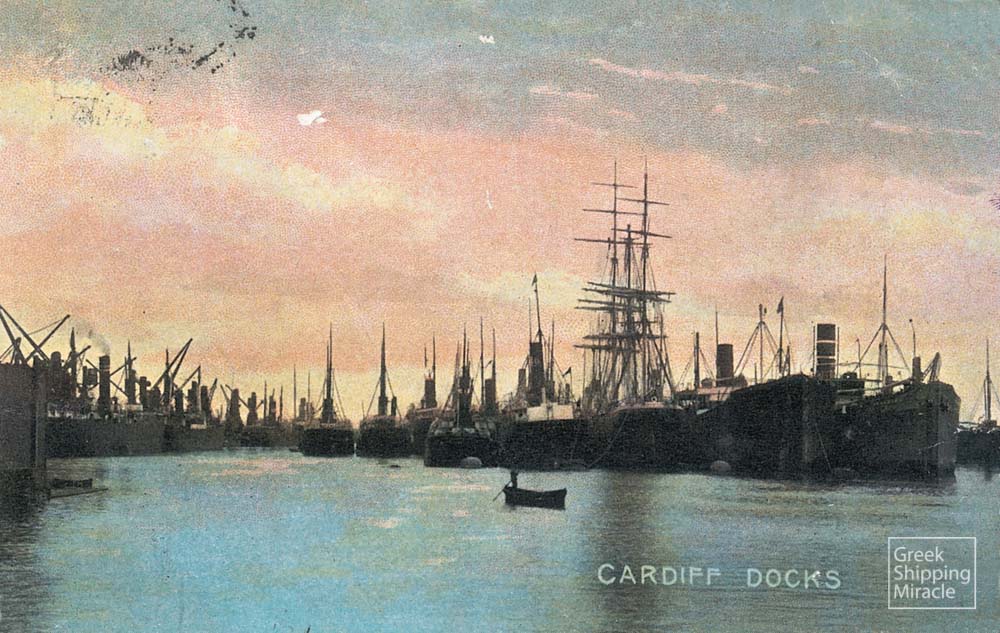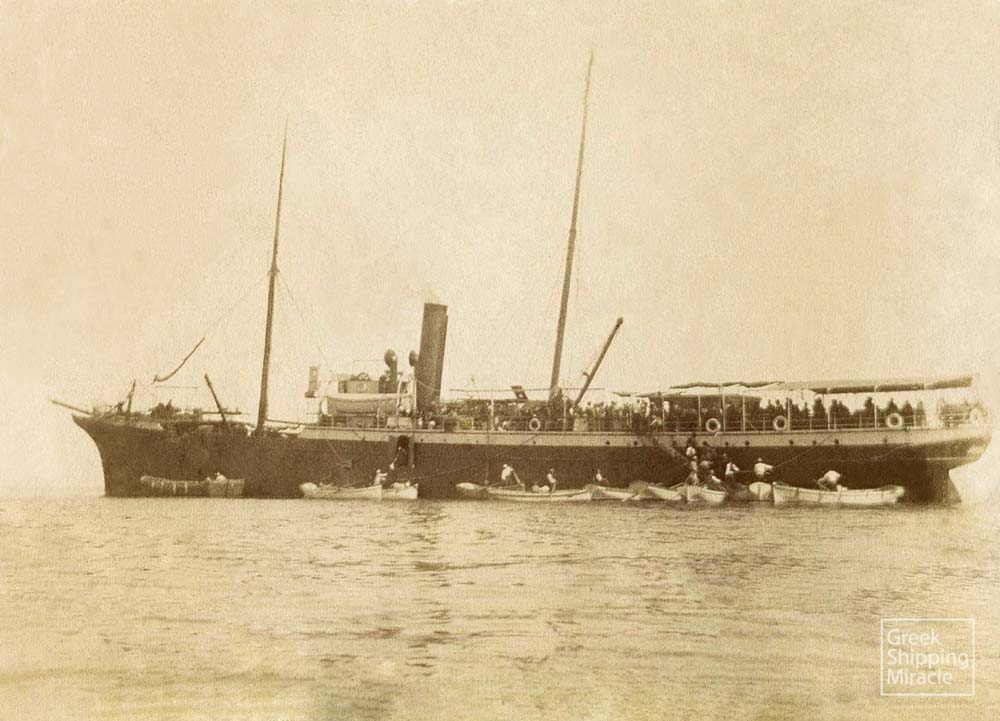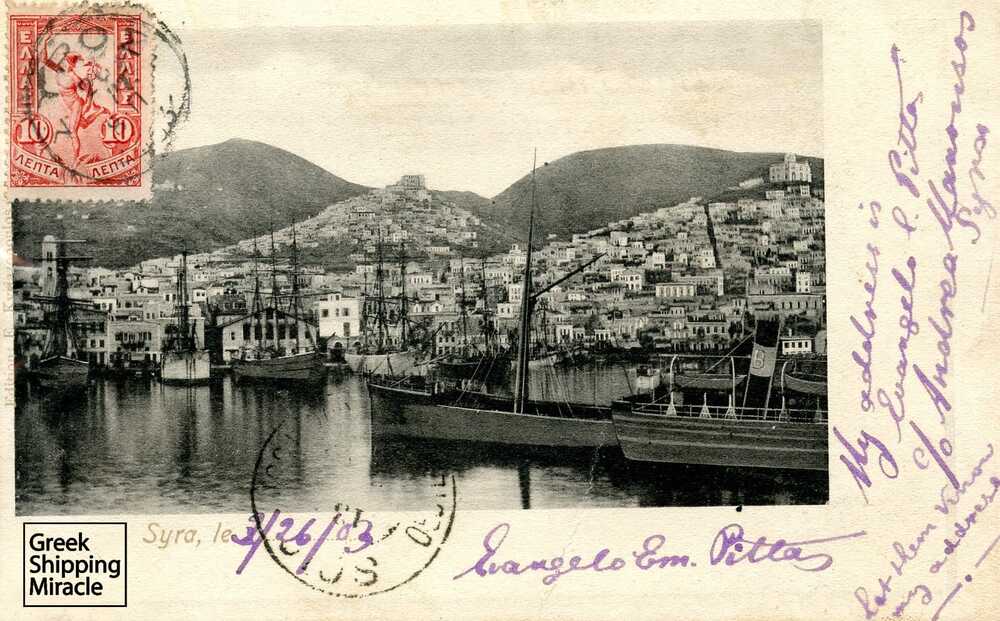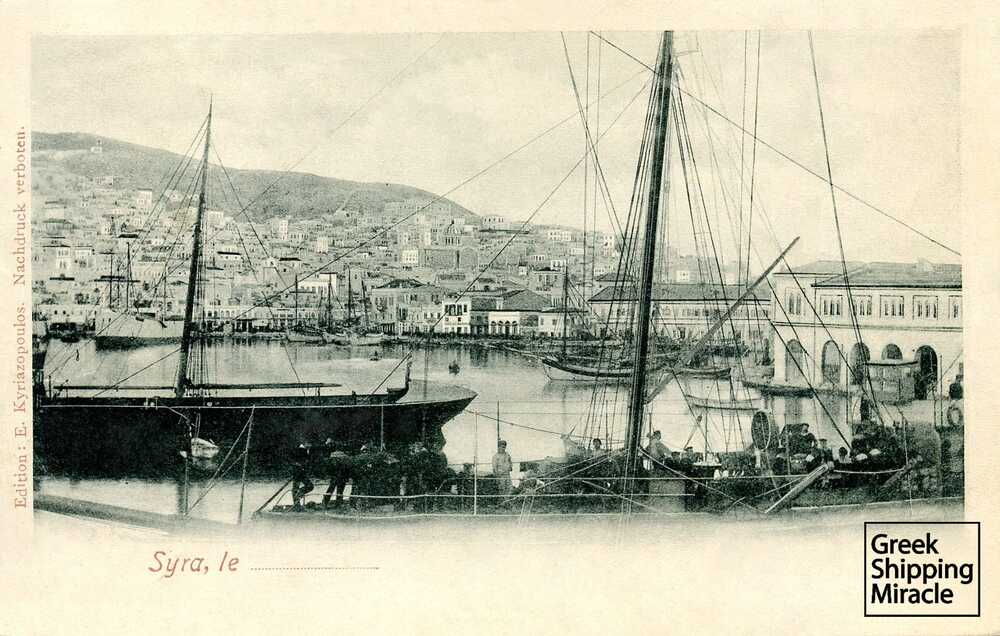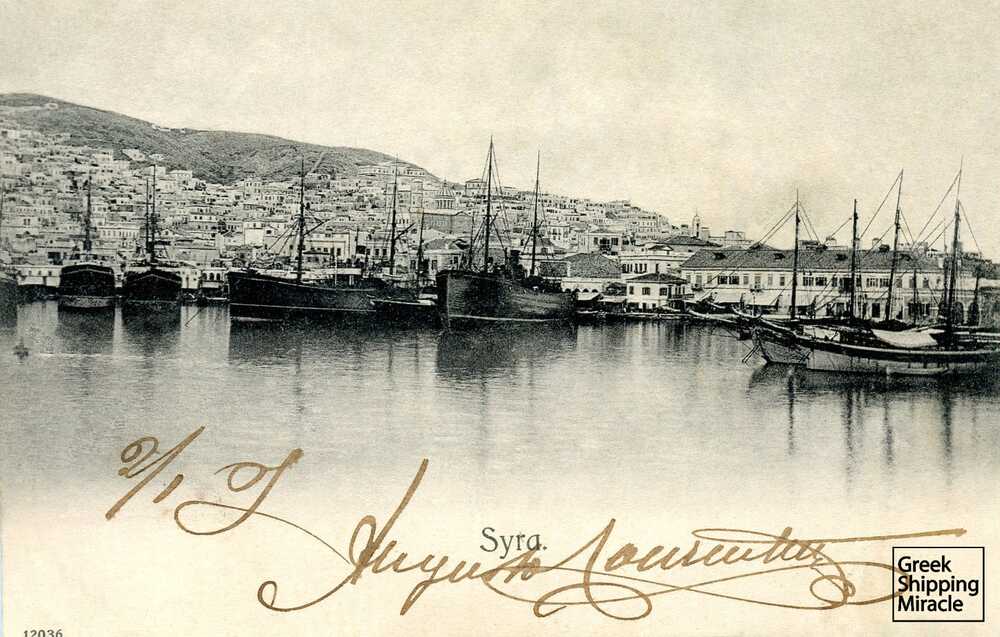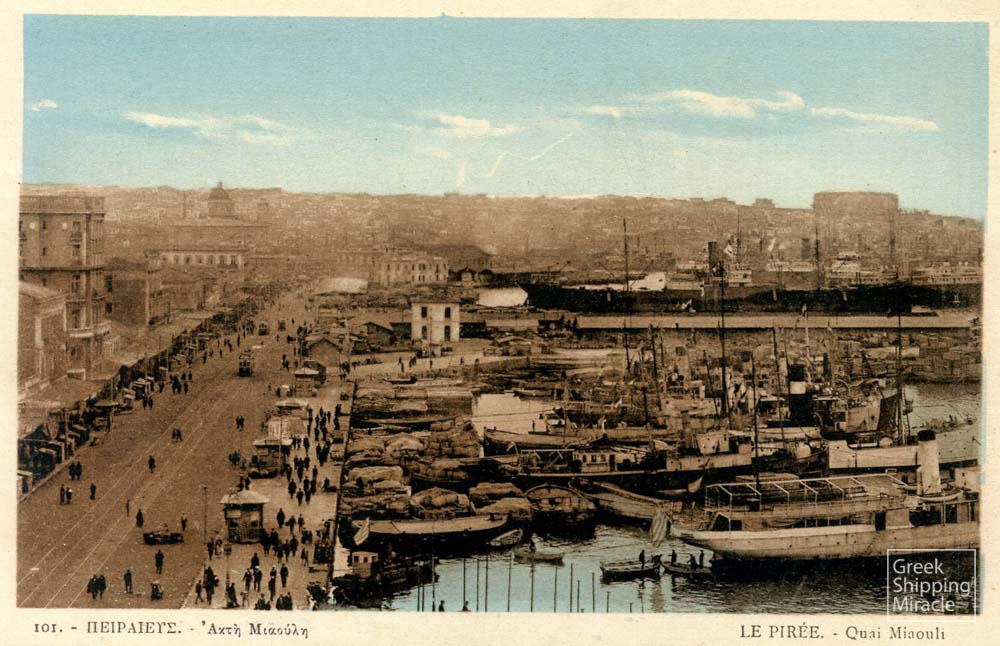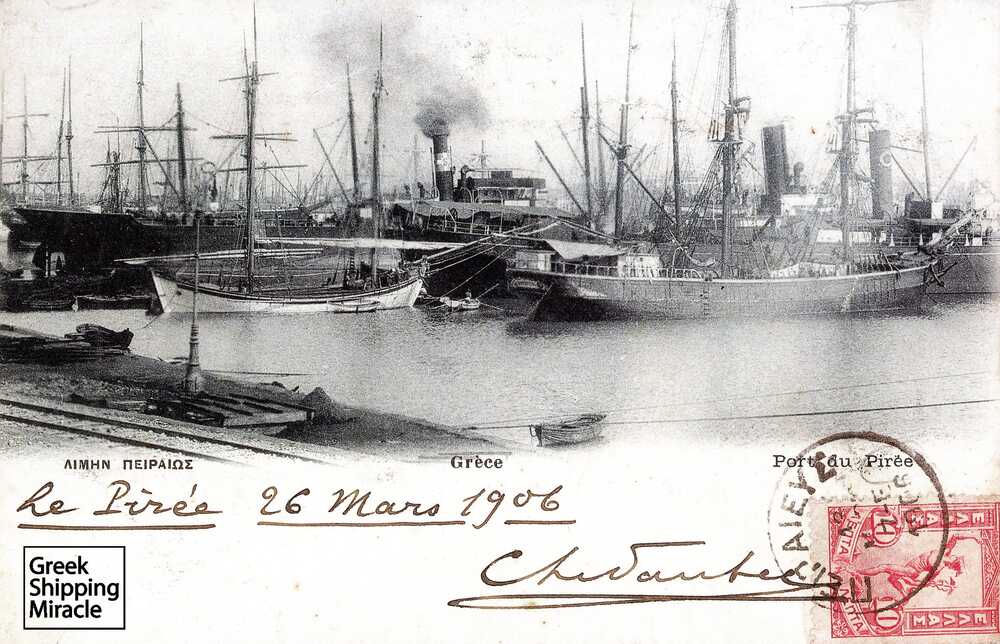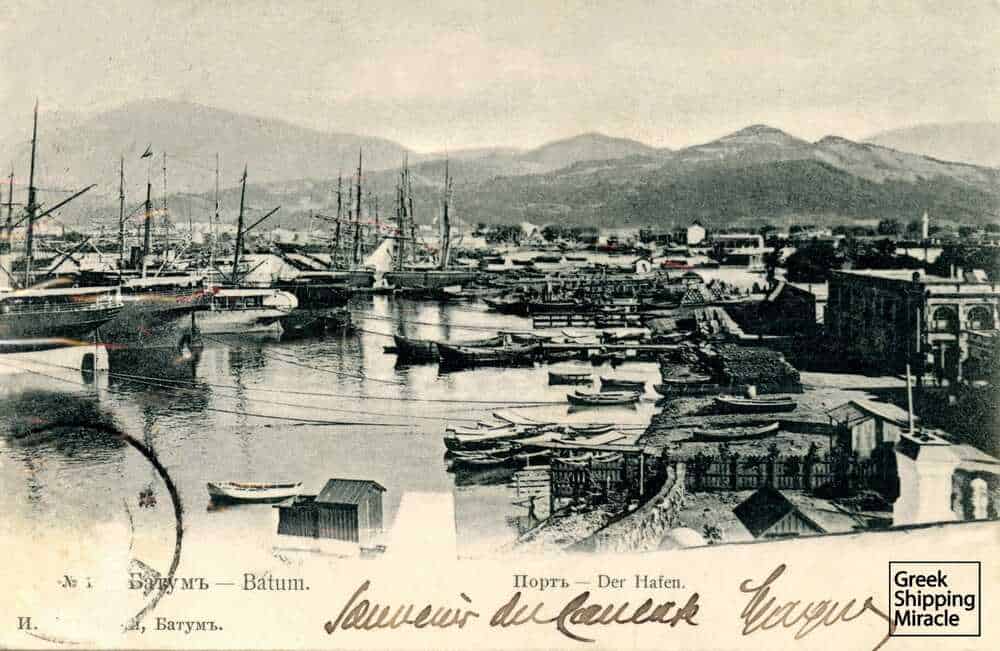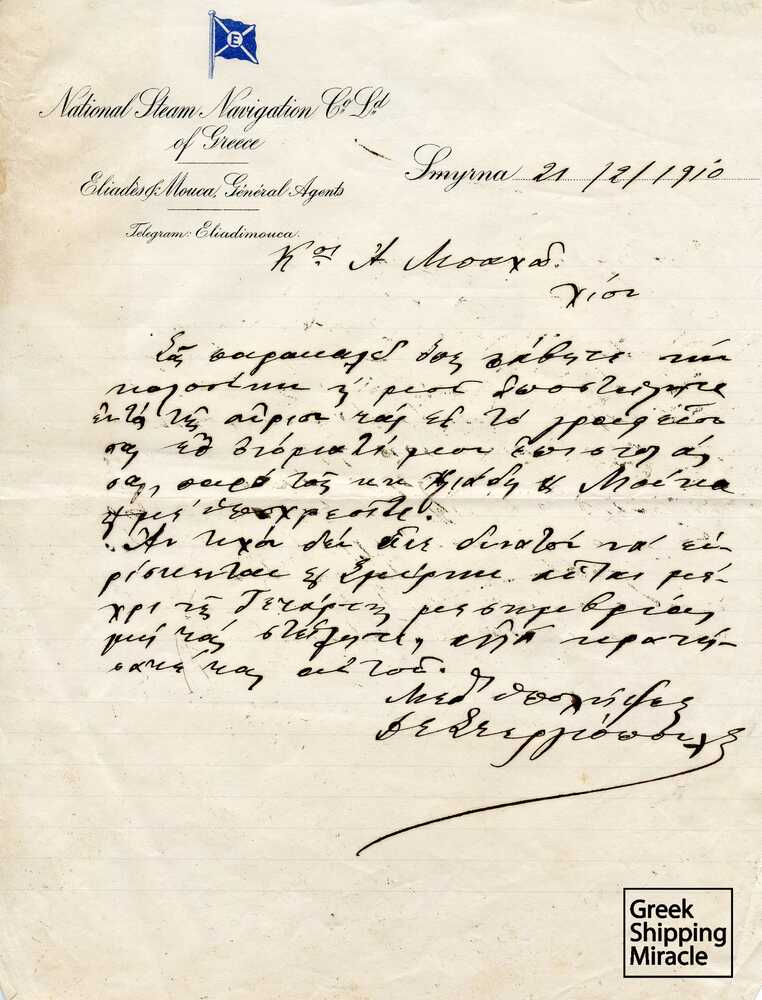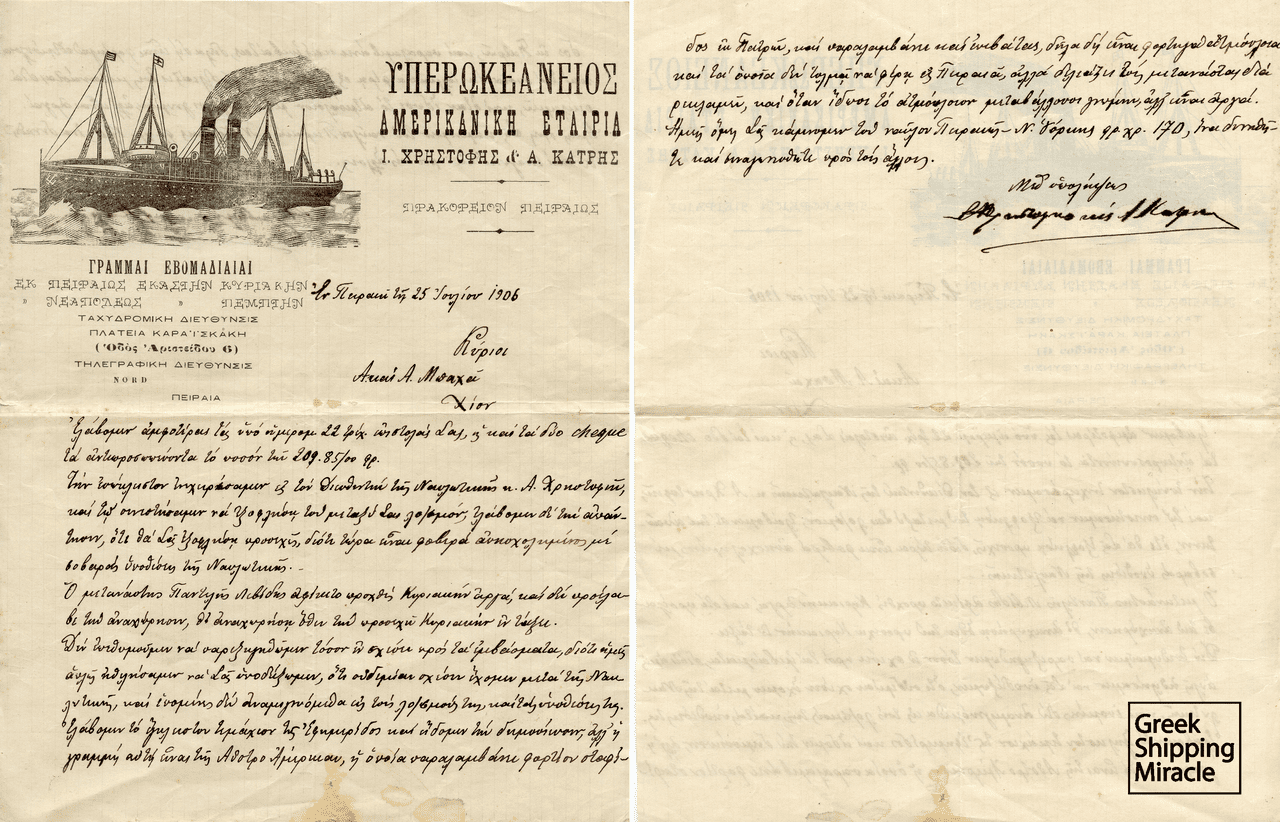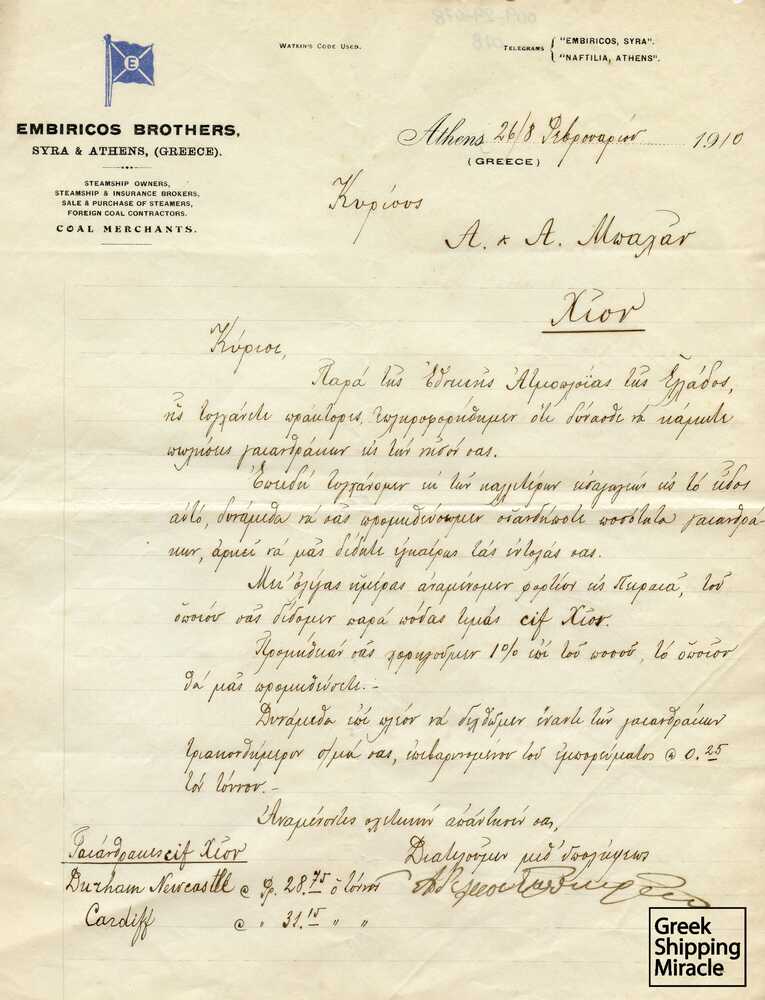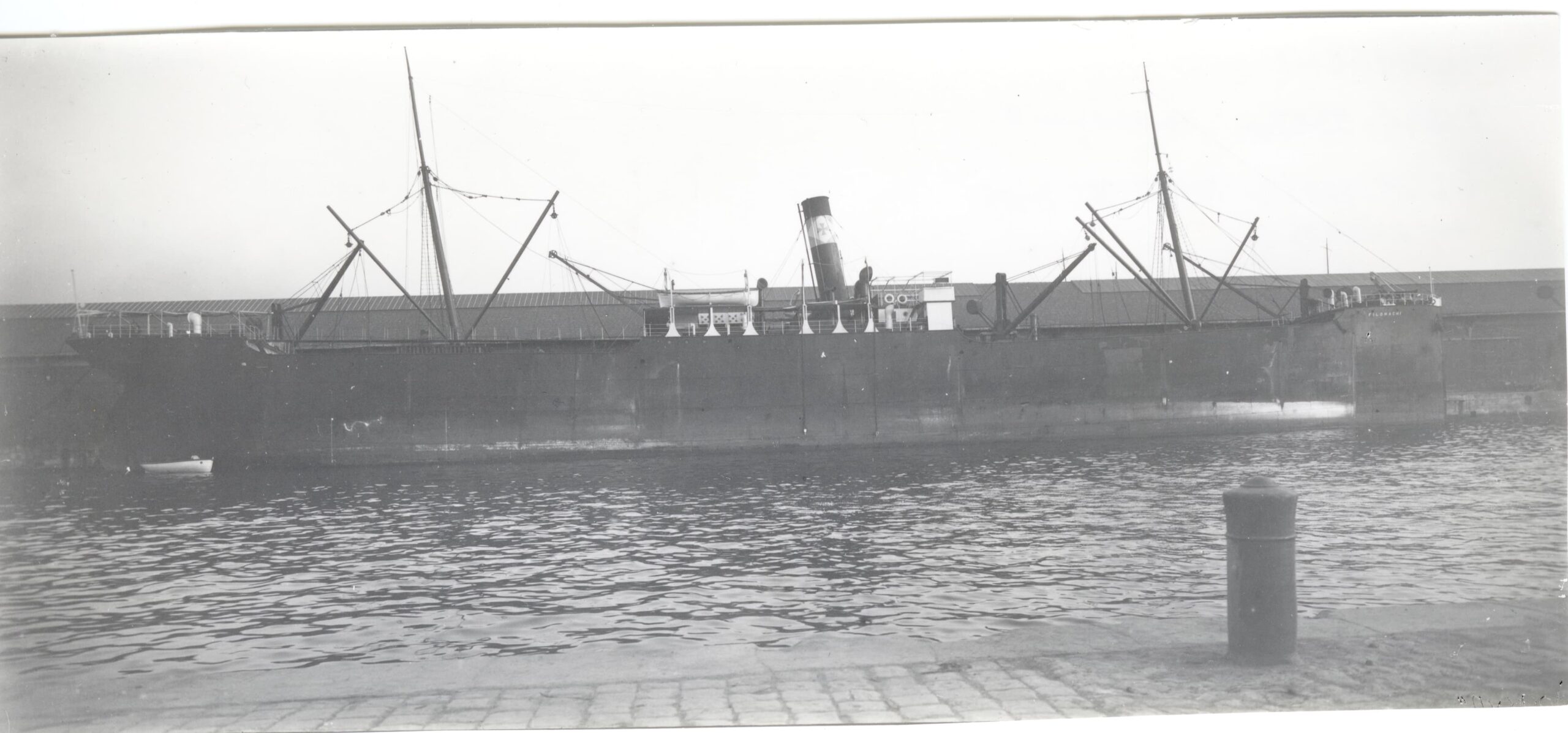Steamships Prevail (1901-1911)
In the early 20th century, heralded the positive indications of the Greeks’ effort to accomplish the transition from sail to steam. The total carrying capacity of their steamers was almost equal to that of the sailing vessels and everything indicated that the predominance of steam would not take much longer.
The dynamic way in which steam shipping was developing had decisively enhanced the status and thus the economy of many Greek islands, mainly Syros, Cephalonia, Ithaca as well as Andros, the rapidly upcoming island in this sector. Besides the islands, the port of Piraeus had also immensely benefited from steamship activity, managing to become the most important industrial and commercial centre in Greece during the last two decades of the 19th century. The rapid development of Piraeus and its key role in trade routes to and from all of Greece gave an unexpected boost to the growth of Athens, the country’s capital. It is worth mentioning that at this time the road and railway networks were still under construction, placing more importance on shipping routes.
The successful operation of steamships and the profits gained by their owners, brought a different perspective to shipping activity and persuaded more Greeks to invest in this flourishing sector. Syros became the focal point of investment, as it was already a major commercial and industrial centre since the mid-19th century and the cradle of Greek steam shipping due to the fact that the first steamship enterprise was founded and operated on this island. It was in Syros that pioneering coalitions, involving a large number of local investors from diverse business sectors, were set up. A point of particular interest in such coalitions was the participation of a large number of master mariners, who in most cases served as masters on steamships acquired. The result was positive for all; investors enjoyed substantial profits which increased their personal fortunes and benefited their unrelated to maritime business ventures. At the same time, the establishment of these coalitions was beneficial to many worthy captains, who gradually became important shipowners themselves.
As time went by, more Greeks, and especially those coming from seafaring families, managed to acquire ageing steamships which were offered in the second-hand market at lower prices.
The rapid growth of Greek shipping began, however, to encounter difficulties when other traditional shipping powers became troubled by the presence of a dynamically evolving competitor, despite the fact that most of them were enjoying the support and protection of their governments. As a result, these powers increasingly applied pressure on Greek shipping for matters related particularly to insurance issues and maritime education, thus affecting its daily operation.
The need to resolve these issues was placed under consideration by the board of the Hermoupolis Commercial Association on the island of Syros as a large number of its members had invested heavily in steamships. They submitted a memorandum in April 1901, calling for the municipality to hold a Shipping Conference in Hermoupolis. The local council adopted the proposal and decided to set up a conference, which took place on September 1, 1902.
Major issues were raised at the conference, including the establishment of schools for the training of masters and engineers able to operate large steamers. They also discussed the adoption and implementation of legislation on maritime mortgages, the establishment of a Maritime Bank in Greece, the operation of Marine Insurance in the country and the ability to build steamships in Greece with state aid.
The conference failed to attract the attention of the government and consequently shipowners had to continue operating without any state support. This, however, proved highly beneficial for them in the long run, as they learned over time to solve most problems by themselves. The industry continued to progress and expand thanks to a healthy freight market and, above all, the complete trust that Greeks had placed in the sea. They extended and broadened their business boundaries steadily. Soon, the first Greek ships started to cross the Suez Canal and for the first time began to make trips both in the Indian and the Pacific Ocean.
Within a decade, the Greeks managed to create a powerful presence in global seaborne trade thanks to their exceptionally innovative business initiatives. These included, amongst others, the building of 55 steamships and the acquisition of 250 second-hand vessels. By the end of December 1911, the Greek-owned fleet comprised of approximately 350 steamships.
Throughout this period, many traditional master mariners of the sail era became steamship owners. One of them, Dimitrios Moraitis, from the island of Andros, went a step further and placed an order in British shipyards for the building of the first Greek oceangoing passenger ship, the MORAITIS which was delivered in 1907. This initiative, which was followed in 1909 by a similar one by the four sons of Andreas Embiricos, led to the establishment of a significant Greek transoceanic passenger service, which provided invaluable benefits to the then sensitive issue of Greek immigrants travelling abroad.
The first decade of the century was marked by the creative presence and work of a renowned personality, Epaminondas C. Embiricos. Throughout his entire career he promoted the interests of Greek shipping in his role as a politician, MP and Minister for the Navy from 1908 to 1909. He timely anticipated the need for the adoption of legislation to cover maritime mortgages and had the relative Bill drafted during his ministerial tenure before it was finally voted in 1910. Embiricos was instrumental to Greece’s participation in the famous Maritime Exhibition of Bordeaux in 1907, specially staged to demonstrate the achievements of all maritime nations since the introduction of steam. Finally, he was one of the co-founders of the Bank of Athens in 1893, which facilitated the acquisition of several Greek steamers, even before the adoption of the Law on maritime mortgages.
By the end of 1911, Greece was changing at a fast pace. The role of merchant shipping proved decisive during this period of change. It was only then that the country’s political leaders started appreciating its value; an especially the great statesman who was destined to change the course of the Nation, Eleftherios Venizelos.
